








































































































































































































































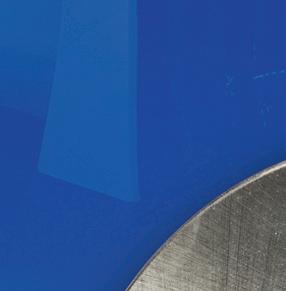





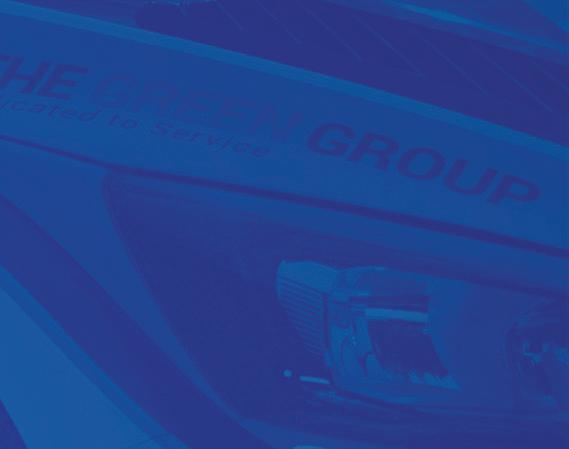


3 YEAR WARRANTY

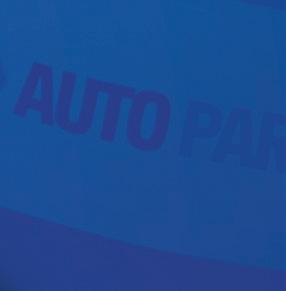



































































































































































































































































































3 YEAR WARRANTY


















































The longest day of the year is already behind us and summer is o cially here. The UK is also heading into the ‘silly season’ — a label often used at this time of the year, particularly by the media.
Journalists, particularly those working in the national press, often turn their attention in these summer months to frivolous stories to make up for a lack of ‘hard news’.
Why? Well with institutions such as parliament in recess, reduced sittings in a number of courts and many major publicly traded companies taking a break from reporting, the daily diet of news to feed a hungry media is reduced.
However, anyone who thought the country as a whole might be navigating a gentle incline into the lazy, hazy days of summer, had a shock when the general election was called.
Suddenly, the longed-for sunshine skies of summer had to make way for heavy political weather, with newspapers and broadcasters assailing us with the political twists and turns of political campaigns. The silly season was o cially delayed.
Editor
John Shepherd
john@aftermarket.co.uk
+44 (0) 1732 370 345
Head of Sales
Angela Lyus angela@aftermarket.co.uk
+44 (0) 7823 736 629
Managing Director
Ryan Fuller ryan.fuller@dfamedia.co.uk
Operations Manager
Emma Godden-Wood emma.godden-wood@dfamedia.co.uk
As this issue was being sent to press — to ensure the print edition is out for those of you who might consider packing it into your luggage as some essential beach/poolside reading — election news was reaching fever pitch.
Ahead of the poll, our Spotlight feature takes a look at the results of a fascinating survey, which highlights some key industry concerns that will face whoever forms the next government. We also hear the key ‘asks’ that a top CEO has for the next transport secretary.
In our business section, we get expert comment on what the arrival of Consumer Duty means for automotive professionals. We also get a legal perspective on recent and expected legislative developments in the constantly evolving area of employment law and the impact on the workplace.
Also, find out what happened when I was given an exclusive behindthe-scenes tour of a 1 million sq ft distribution hub in Sta ordshire that is a vital link in the aftermarket supply chain serving thousands of UK garages every week. You will all know of the company behind this amazing
Marketing Manager
Hope Jepson hope.jepson@dfamedia.co.uk
Production Design
Anthony Wi en
Finance Department
accounts@dfamedia.co.uk
+44 (0) 1732 370 340
Chief Executive
Ian Atkinson ian.atkinson@dfamedia.co.uk
Contributors
Bill Fennell | Jonathan Barrett
Sophie Wahba | Kerrie Richards
Martin Pinnell-Brown | David Banks
operation, but you have to turn to page 32 for all to be revealed.
And just to check that you really do read this introduction… this is your chance to tell me more about you and your business. Please email me if you would like me to visit your garage and find out more about what makes your operation tick. You and your team could be featured in a future edition of the magazine.
I’m also interested to hear whether any of your garages/depots have a workplace mascot. It might be an animal or object that has been adopted by the team to help the working day go with a smile and, while having an animal might not be suitable for every business, I hear on the grapevine there are some unsung and unusual mascots out there, so get in touch and tell me more!
Meanwhile, enjoy this special summer double issue. Our next edition will be out in time for the start of September and will include an umissable preview of The Aftermarket Event.


John Shepherd Editor
Published by
192 High Street Tonbridge Kent TN9 1BE
+44 (0)1732 370340
ISSN 2516-9149
Aftermarket














TPS, the Volkswagen Group Genuine Parts provider to the independent motor trade, has launched a new oil into its Quantum range.
The Quantum Synta RN 5W-30 oil is now available and with ACEA C2/C3, API SP, Renault RN17, PSA B71 2290 and MB 229.52/226.52 oil specifications, it’s suitable for use across a wide range of vehicles including Citroen, Renault and Mercedes models.
It’s the first in a trio of new oil products to be launched in the next 12 months.
Dave Smith, Volkswagen Aftersales Product Manager for Fluids and Lubricants said: “The Quantum Synta RN 5W-30 brings the total number of oils to 17, and with two more to follow making it 19 in total, it’s our widest range of Quantum oils ever available.
“As part of the current Quantum oil range, the LongLife, Platinum, Ultra and Synta oil sub-brands all provide a choice of options suitable for both petrol and diesel cars and for vehicles with long service intervals and specific engine requirements.
“With such a comprehensive range of products comes the
The Cube is constructed from a strong, durable, splash-proof cardboard outer
reassurance for customers that whatever the requirements of their vehicle fleet and servicing needs, TPS will have an oil option for them.”
The Quantum Platinum Plus RN 0W20, the latest Quantum Platinum Plus oil, is the next to arrive at the end of the year. It’s a new oil designed for more modern, economical engines and with ACEA C5, API SN and Renault RN17 FE oil specifications, it can be used in various BMW, Mercedes Benz, Jaguar Land Rover and Volvo models.
The final oil to launch is the Quantum Ultra PSA 0W-20 and will be first available to garages in the early part of 2025. It has ACEA C5, API SP and PSA B71 oil specifications and as with all the 0W-20 oils helps play a significant role in reducing emissions by ensuring the engine operates more efficiently.
Each and every Quantum oil product is manufactured to the highest quality and designed to operate under the toughest conditions. With the ever-expanding choice of oils in the range, Quantum Oil now has 96% coverage for the UK car parc and holds approvals and recommendations for use in a variety of modern vehicles, including hybrids, and across a range of manufacturers.
As well as great choice and quality, the Quantum oils are also available in some fantastic storage options. The 208 litre Quantum oil barrels, available across the range including Platinum Plus, Longlife III, Longlife IV, Synta and Ultra products, are a very cost-effective choice as they hold an extra 9 litres per barrel compared to the standard 199 litre barrels
New oil is designed for more modern, economical engines
available in the market.
As well as Quantum oil barrels, there are also further pack options to support all sizes and needs of a workshop. The 1L, 5L and 20L pack sizes are all available in Cube forma single-use, recyclable packaging system, offering both reduced disposal costs for customers and a reduced impact on the environment.
The Cube is constructed from a strong, durable, splash-proof cardboard outer containing a product filled plastic inner, all 100% recyclable and with built-in handles for easy operation.
Once empty, the cardboard outer can be flat packed and placed with the normal recycling waste. With a reduction in plastic usage and savings on disposal costs, it’s the perfect solution to benefit both the pocket and the planet.
The Quantum oils range is available from your local TPS Centre. For further information click here https://tps.trade/products/oil


The Quantum ‘lube’ Cube is a single-use, 100% recyclable packaging system. It’s convenient, cost-effective and sustainable. And its flat pack construction offers a significant reduction in waste storage space.


100% 60% 96%
Recyclable packaging* Increase in pallet volume^ Reduction in disposal costs*



^Figure based on FUCHS 5L Lube Cube compared with traditional 5L
containers Discover the full range at: tps.trade/oil




Schaeffler has helped put an ambulance operated by a community first responder (CFR) charity based in Walsall, in the West Midlands, back on the road.
The Schaeffler team sourced the replacement clutch system the vehicle needed and arranged for a local garage to fit the kit free of charge.
The charity made an appeal for help in finding a suitable replacement clutch on Facebook. The post was seen by Mark Dolloway, MD at Schaeffler Automotive Aftermarket (UK). Then David Green volunteered for his garage, DG Automotive, to fit the clutch.

Fastaid Walsall fields a team of CFR volunteer paramedics who are called out by the West Midlands Ambulance Service if they are able to respond to a
The Shortis Group independent chains of family-owned motorists’ stores — serving Yorkshire and Lincolnshire with their Wilco Motosave Centres and East Anglia with Fast-Fast — have upgraded many of their Supertracker laser wheel alignment systems.
Shortis said they have introduced the latest computerised 6-sensor wheel alignment systems from the Straightsetowned Supertracker.
Wilco Motosave and Fast-Fit, have been using Supertracker wheel alignment systems across their network of sites for many years.
life-threatening situation faster than a regular ambulance crew.
Elring Parts has joined the Independent Automotive Aftermarket Federation.
The parts supplier and manufacturer, with more than 140 years of OE sealing expertise, said it is dedicated to expanding its range.
Mark Ventre, sales and operations manager for the UK, Eire and Iceland, said joining the IAAF would enable the firm to better advocate for the interests of independent automotive businesses, networking and keeping up with latest industry developments and regulations.
DENSO has released two new instructional videos to help technicians diagnose air conditioning system problems.
The online videos focus on the compressor, one of the most important components within the AC system, because problems with this key part can have severe consequences elsewhere in the system, DENSO said.
After a practical overview of how to diagnose the problem, the first video focuses on how to correctly and efficiently check the condition of the

faulty compressor and to carry out the correct repair procedure.
The second video addresses the
need to ensure the correct level of oil is present in the new compressor for the AC system to perform at its best.

The ongoing skills gap in the UK’s automotive sector is an “artificial straitjacket” around UK independent garages that is stifling potential and increasing costs for motorists, the CEO of GSF Car Parts has warned.
Steve Horne (pictured) said whoever forms the next government needs to tackle the skills deficit urgently.
Horne, speaking on June 13 ahead of GSF’s TechFest Garage Technology Festival in Wembley, said: “The skills gap currently facing the sector is a huge ticking timebomb — and it only seems to be getting wider and wider. This is incredibly painful for garages that are successfully winning work and looking to grow.”
GSF is recruiting heavily and adding a huge range of skilled jobs, but finding people is a real challenge for the sector, he said.
Horne’s warning came just weeks after
analysis published by the Institute of the Motor Industry showed vacancies in the automotive aftermarket remain stubbornly high at 23,000.
“As a company, we want to grow too,” Horne said. “We have invested millions in scaling our business and driving growth, but our success depends on our customers being able to thrive. And for that, they need skilled technicians in big numbers.”
Aftermarket reported last month that GSF will open a new 500,000 sq ft national distribution centre in Wolverhampton to “rapidly awaken the sleeping giant of the UK aftermarket”.
“We need to direct more young people to the sector, give the industry a name as an ideal career destination, whilst opening more routes for young people,” Horne said.
“The independent garage sector has been in the shadows too long. There are exceptional people working in skilled

roles on incredibly complex vehicle technologies. The public’s perception may be of people twirling spanners, but technicians need a raft of skills to deal with today’s cars.”
Meanwhile Ambi Singh, CEO of Easy2Recruit — a recruitment agency that helps UK garages and automotive businesses hire from overseas — revealed he had written to Home Secretary James Cleverley asking for vehicle technicians, mechanics and electricians to be added to the UK Shortage Occupation List, which allows employers to hire and sponsor overseas workers with the required skills under more favourable criteria than other jobs. Singh said: “This shortage poses a direct threat to the UK’s automotive industry’s ability to innovate and compete on a global stage.”


























































Britain will be the environmental sick man of Europe if waste regulations are not updated to ensure the correct management and disposal of end-of-life tyres, the UK’s Tyre Recovery Association (TRA) has warned.
The TRA has revealed that legislation passed by the European Union earlier this year paved the way for a tightening of exports of waste materials from member nations of the bloc.
However, the EU’s move has left Britain with the unenviable reputation as the only major European nation legally able to export baled end-of-life tyres to countries like India, the TRA said.
The TRA said the issue will be a key topic for discussion as its annual conference in September — when the association will call for updated national regulations to avert the potential “imminent demise of the UK’S domestic tyre recycling industry”.
End-of-life waste tyres were one of the items specifically referenced in the EU’s updated Waste Shipment Regulation — under which waste cannot be sent to non-OECD countries unless the country concerned is willing to import it. The countries must also

environmentally sound management of waste through auditing by independent bodies and monitoring by the European Commission.
Figures recently released by India’s Automotive Tyre Manufacturers’ Association showed that India imported around 800,000 tonnes of scrapped tyres between April and November 2023. The UK and EU member nations were the majority contributors, according to the TRA.
“In updating its regulations, the EU recognises that safe and e cient shipments of waste are key for a circular economy.”
Now the TRA and other professional recyclers fear that with waste exports to common destinations in Asia banned, “irresponsible British operators and exporters are the likely receptacles for those negligent European operators looking to dump their product abroad”.
The TRA said it wrote to the government at the end of last February, saying it was time for the UK to acknowledge that “far from tackling this environmental assault, current policies enable some UK operators to facilitate

secretary general, said: “Without the necessary policy update Britain will shortly be the environmental sick man of Europe, home to unscrupulous operators taking malign advantage of the EU’s tighter rules. Britain is set to be the only European nation exporting environmental waste beyond its shores without proper scrutiny or oversight.
“Ministers have been sitting on their hands for too long, this must stop. The steps are simple and inexpensive. Four years ago, this was acknowledged with the commitment to end the T8 exemption, yet still we wait for that legislation.
“Now we see the European Union taking decisive action and, rather than recognising the benefits from aligning with that regulatory approach, our government refuses to engage.”
but the business case for maintaining
The TRA said in April that the UK has at least 150,000 tonnes of licensed idle domestic recycling capacity of its own, but the business case for maintaining it was being undermined by “political

Garage equipment and maintenance company Gemco has acquired the business and assets of Tecalemit Garage Equipment — which will now be trading as Tecalemit Workshop Equipment — for an undisclosed sum.
Gemco confirmed the deal on June 18,

noting that Tecalemit has been a long-term provider of garage equipment, diagnostic tools, and services in the UK since 1922.
The history and values of Tecalemit are synonymous with the brands sold within Gemco’s parent company, Nexion, the company said.




UK has at least 150,000 tonnes of licensed idle domestic recycling capacity of its own, according to the TRA

Nexion is a leading worldwide automotive company that designs, develops, and produces technologies for the automotive maintenance and repair sector.
These brands include Bradbury, Bright, Mondolfo and Sherpa.

Lead acid battery giant Banner said the market for its products is set for continued growth over the next decade — with a healthy aftermarket future ahead for the group’s UK operations.
Banner GB country manager Lee Quinney issued the upbeat forecast for the stalwart battery technology on June 14, as the Austria-headquartered group reported a turnover of €302 million (£255m) for the past financial year.
The group said it sold four million starter and on-board batteries in the year up to March 31, 2024, confirming its place as one of Europe’s leading manufacturers of batteries and battery accessories.
In relation to the future of lead acid batteries specifically, Banner is predicting market growth of around 2% annually over the next 10 years.
Quinney said: “The future for the UK aftermarket operation certainly looks a

healthy one.
“The last financial year saw Banner in the UK continue to achieve record growth in terms of sales and profitability, something we are looking to build on this year and beyond.”
Quinney said overall demand from the automotive sector continues to be buoyant, while sales in the commercial vehicle, leisure and bike sectors are also expected to exceed forecasts, which he attributed to the quality of products and strength of the brand at OE level, plus “unprecedented levels of product availability”.


However, Banner acknowledged that sales were around 1% lower than the record figures achieved in the previous financial year.
Group commercial CEO Andreas Bawart said the outlook for the lead battery market remained positive, despite challenges linked to the ongoing energy crisis, the war in Ukraine and increased competition from Asian manufacturers.
And he said the “initial euphoria for electric cars has subsided and a certain disillusionment has set in”.
Many first-time buyers of EVs are realising that promised ranges are not being achieved and that public charging facilities are still inadequate, Bawart said.
Meanwhile, Banner is looking to invest in training and personal development and will launch a new training workshop by the end of this year to support the group’s ‘Apprenticeships from 15’ programme.



www.ms-motorservice.com

GSF Car Parts has confirmed it is set to open a 500,000 sq ft national distribution centre in Wolverhampton.
The milestone development, announced on May 21, comes after GSF’s acquisition last October by private equity firm Epiris.
CEO of GSF, Steve Horne, said the new facility is part of moves to “rapidly awaken the sleeping giant of the UK aftermarket”.
The facility, whose mezzanine floor can be expanded to 750,000 sq ft, brings together office space, advanced logistics capabilities, a dock and eightlevel access loading doors, plus parking for nearly 700 cars and HGVs combined.
A GSF spokesperson told Aftermarket the facility is expected to come on stream in the fourth quarter of this year.
The announcement came off the back of a period of rapid growth for the car parts distributor, which now has more than 185 branches and 3,000 team members across the country.
GSF executive chairman Sukhpal Ahluwalia said: “From the first day, we knew that we needed a new national distribution centre to support our ambitious growth plans.
“Less than a year after acquiring GSF Car Parts, we have got that done. The

speed with which we have managed to complete this important step is validation of the amazing team that we have at GSF.”
Meanwhile, GSF announced a 30% year-to-date increase in sales of automotive exhausts compared to 2023 — telling Aftermarket the surge reflected the increasing popularity of its A2A brand.
A2A is manufactured exclusively by a
leading OEM/OES provider.
A GSF spokesperson said the record increase highlighted the company’s tracking of growth in the market, as opposed to a general perception that the auto exhaust sector is declining.
In addition to enhancing automotive parts, GSF said its investment in staff training and increased delivery frequencies is underpinning business growth.
Lead battery giant GS Yuasa has launched a fresh campaign to boost the brand’s presence in the automotive, fire and security and UPS markets.
Yuasa, whose European HQ is in Swindon, announced on June 3 an update of its ‘upgrade to Yuasa’ campaign that was first rolled out in 2021.
The campaign targets several industry sectors in addition to trade customers and automotive distributors and technicians.
GS Yuasa Battery Europe moved to the 178,500 sq ft Swindon facility from

the group’s factory in Wales last year.
The company oversees the group’s six European companies and Yuasa said the move was designed to strengthen finance, supply chain and IT operations across the continent in support of the group’s ambitions to
increase its market share in all markets and regions.
James Douglas, European group marketing manager at GS Yuasa Battery Europe, said the company is set on solidifying and expanding the brand’s presence throughout Europe, targeting new customers and partnerships that enable mutual growth in the battery business.
“Opting for a Yuasa battery, or choosing GS Yuasa as your partner, represents an upgrade in every sense — enhancing product performance, service quality, and business outcomes,” Douglas said.

Delphi Academy has announced the launch of a course aimed at shaping the future of hydrogen training across the industry.
The advanced training course, unveiled on May 30, has been developed using Delphi’s extensive fuel system experience, knowledge of hydrogen internal combustion and deep understanding of the UK aftermarket.
Delphi said the initiative is available as progression training for its wellestablished IMI-accredited hydrogen

awareness course.
Technical trainer David Guilfoyle said: “Hydrogen technology is still emerging. Our engineering teams have been pivotal in helping the industry establish benchmarks for hydrogen training.”
Guilfoyle said the two-day course goes far beyond the basics and provides participants with an education as part of a new era of hydrogen internal combustion vehicles and offers a deeper understanding on the principles of hydrogen fuel cell and hydrogen internal combustion operation.
Practical tasks on Delphi’s hydrogen powertrain rig include changing injector seals, which involves a special hydrogen purging process.
Delphi UK technical services manager Luke Garratt said: “Hydrogen technology is a hot topic, yet there’s a lack of deep understanding about its role within the automotive sector, especially when compared to other renewable fuels.
“The key lies in identifying the appropriate fuel for each application and possessing the expertise and resources to maintain that technology.”
The first delegate to complete and pass the advanced hydrogen training was Neil Fryer, VP and GM for the global aftermarket at Phinia.
Aftermarket emission systems manufacturer Klarius has been named as a finalist for Staffordshire Chambers of Commerce 2024 employer of the year award.
Klarius is one of three finalists in the category. The company said its recognition highlights the firm’s commitment to employee development and its impressive retention rates.
The Staffordshire Chambers of Commerce noted that the company’s average retention rate stands at eight years, which it said is double the UK national average.
Some 20% of the Klarius workforce is made up of employees who have been with the company for more than 20 years.
Key training and development initiatives include promoting employees from the shop floor to management roles and a robust apprenticeship programme, Klarius said.
This has helped 4.5% of staff pursue apprenticeships at foundational level, with another 1.3% working toward degree-level apprenticeships.
Sarah Ratchford, head of HR, said: “Being recognised as a finalist for the employer of the year award is a testament to the hard work and dedication of our team. Our focus on employee development and well-being is at the heart of everything we do.”
The winner of the award was due to be announced on July 4. For peace of mind always use a Garage Equipment Association member. GEA accredited engineers work to an industry code of conduct. Your assurance their

SMMT chief executive Mike Hawes has been awarded an O cer of the Order of the British Empire (OBE) for services to the automotive industry in the king’s birthday honours list.
Hawes joined SMMT as CEO in 2013 after a number of years in the automotive sector in the UK and overseas.
He started his career in the road transport research sector in 1990 and joined SMMT from Bentley Motors, where he held director positions with responsibility for global communications, government a airs and corporate social responsibility.
Prior to that, he held senior government and corporate a airs positions at Toyota, both in the UK and Europe.
SMMT said on June 14 that Hawes has sought to ensure the country is one of the best places in the world for the automotive industry to do business.
Influential
Over more than a decade, he has led the industry through a period of technological, structural and geopolitical change, working tirelessly to ensure the UK sector’s global competitiveness and reputation are enhanced, SMMT said.
One of the biggest challenges facing the sector is the need to attract new talent. SMMT said Hawes was an

influential advocate in the creation and work of Mission Automotive, which places ex-service personnel in jobs across the sector, signed SMMT to the Armed Forces Covenant and saw the organisation receive a gold award under the Defence Employer Recognition Scheme — the first trade association to be recognised in this way.
Hawes also plays a key role in the Automotive Council — a partnership formed in 2009 to foster collaboration between government and the automotive industry.
And as a main board member and chair of the UK Competitiveness and Business Environment working group, Hawes has driven work to enhance the UK’s attractiveness and delivered the UK’s first Automotive Diversity Charter, which counts every major UK-based



automotive manufacturer as a signatory, SMMT said.
‘Talented team’
Hawes said he shared his honour “with a dedicated and talented team at SMMT and a UK industry which wants to be the best.
“The past few years have been anything but smooth, but the UK sector has proven itself resilient, adaptable and, as ever, incredibly innovative. This recognition reinforces the importance of the industry and SMMT itself.”
Mick Flanagan, SMMT president and Adient VP, said: “Mike has devoted his career to our sector, promoting our interests, defending us when necessary and always seeking to create the conditions that would see the UK industry compete at home and abroad.”
Aftermarket reported last month that the SMMT group had won a golden endorsement as one of Britain’s top workplaces.
The group, including SMMT, Industry Forum and The Motor Ombudsman organisation secured gold accreditation from Investors in People. The gold accolade, which is achieved by just 17% of organisations seeking IIP accreditation, was awarded in recognition of advanced levels of organisational leadership, with an emphasis on transparency, recognition, wellbeing and empowerment to encourage innovation and collaborative working.






















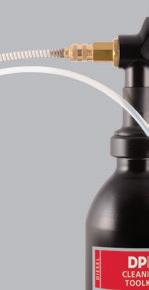







There is still time to join your fellow industry peers for The Aftermarket Event at Farnborough International — a unique, two-day live event, dedicated to the UK garage sector.
Farnborough has always been the nation’s go-to destination for the pioneers of today and the future and YOU can be part of this exciting event, on October 2-3, which will translate the unmissable mix of information, technology and skills seen across all the aftermarket platforms into a mustattend happening for everyone working in and around the garage trade.
The Aftermarket Event will feature an exhibition, interactive workshops, informative seminars, comprehensive training and more, with exhibitors from across the sector offering a fresh window on our vibrant industry.
LKQ Euro Car Parts CEO Kevan Wooden will deliver the keynote address on the opening day of the event. The first day will also include an update on the independent garage sector by the IGA’s Jonathan Douglass.
Castrol & The Race Group’s, Dan Bridges and Dave Roberts will take the audience through ‘Understanding the right oil for your workshop and the challenges of belts & DPFs’ including the basics of understanding oil, the importance of fitting the right oil and OEM approvals.
Day 2 promises highpowered panel discussions on the subjects of ‘Healthy Retention in the Aftermarket’, featuring Jennifer Webb, Director of
HR Vitals, Ellen Plumer, Head of Outreach at Ben and Ambi Singh CEO of Easy 2 Recruit and ‘Mixed business? Are EVs still THE future?’ with Andy Crook and Peter Melville Technical Director at HEVRA
‘The evolving shape of the Aftermarket’ with speakers from Delphi and LKQ Euro Car Parts. The Event aims to tackling key questions across the sector such as:
l With an ongoing skills crisis, it makes good business sense to look after the staff you have, but how do you do that?
l What will workshops need to do over the coming years in order to stay relevant and profitable?
l With the 2030 ICE ban rolled back to 2035, are EVs still set to be the future of motoring? Could today’s mixture of drivetrains become the format for the future?
Castrol & The Race Group are the event’s Headline Sponsor — with Distrigo Parts Distribution as a Registration Sponsor. With further backing from major sector organisations including the GEA, IGA, RMI Standards and Certification, HEVRA and the British Compressed Air Society (BCAS), support for this industry-leading event is growing exponentially. Media Partners include Car Mechanics, Auto Repair Focus, Hydraulics & Pneumatics, Plant & Works Engineering and Aftermarket magazine.

Major names confirmed include LKQ Euro Car Parts, Castrol & The Race Group, Distrigo Parts Distribution, Delphi, Hella Guttman, Absolute Alignment, Ben, Autel, A1 ADAS Solutions, TOPDON, JLM Lubricants UK, MOTUL, HR Vitals, Garage Vitals, EINTAC, AJD Tools, Think Car and Pro-moto. EINTAC said: “We are delighted to be exhibiting. This year has been an extremely important one for us as we have revised our product line-up and overhauled our extremely popular Electric Vehicle Tool Kits to offer our customers higher quality, lower prices and more options. Alongside brand-new products and industry leading training courses, we are excited to be able to debut this new and improved EINTAC range at The Aftermarket Event later this year.”
The event will be colocated with another show, Safety, Health & Wellbeing Live, meaning The Aftermarket Event visitors can also learn more about workplace safety and occupational health. Register Now: To get involved in another way, contact Ryan Fuller ryan.fuller@dfamedia.co.uk / +44(0)1732 370340.


To join us at The Aftermarket Event as a visitor, register your interest online or to become an exhibitor, contact Ryan Fuller ryanfuller@dfamedia. co.uk/ +44(0)1732 370340.






DEDICATED TO THE INDEPENDENT GARAGE & BODYSHOP SECTOR



ALL UNDER ONE ROOF DIAGNOSTICS, TRAINING, TOOLS, TECHNOLOGY & WELLBEING



2024 EXHIBITORS INCLUDE:
























Fault finding demonstrations on live vehicles
Live audience
Industry updates
New tools, equipment & software
Find out more about the Top Technician competition





Hear from and network with industry experts
Live panel discussions and seminars covering major issues and developing market trends
Health, Safety & Wellbeing Content in association with Ben - The Automotive Industry Charity.
Discover ways to level-up your business
Ask our speakers and panels your own questions




ETB Wholesale is ramping up investment to position the firm as one of the biggest regional players in the sector — including a sales deal with Indian multinational tyre manufacturing company Ceat.
The company said new tyre partnerships is part of its business drive along with promotions and a boost in its online presence.
An ETB spokesperson told Aftermarket on June 10 financial details of the Ceat agreement are not being disclosed.
However, ETB said the deal allows for a four-tiered tyre proposition for customers, with the super-budget, economy, mid-range and premium ranges all catered for.

In addition, sell-out promotions are being introduced for the first time, while the business’ online presence is being boosted.
Sales director Paul Carter said sales have been extremely positive during quarter one and the firm has generated a lot of momentum.
“We’ve achieved a great deal in a short space of time and thanks to the assets we’re bringing into the business, we’re extremely excited about our potential to become an even more compelling player in the wholesale sector.”
ETB already has a huge selection of tyres to its name and is a leading operator in the Midlands, Wales, southwest England and Cornwall, stocking brands including Bridgestone, Davanti, Landsail and Ceat.
The company operates from regional tyre distribution centres in Bridgend, Chepstow, Exeter, Plymouth, St Austell and Worcester, with a ‘rapid response’ on-demand service in selected areas.
The National Franchised Dealer Association has unveiled seven key ‘asks’ of the next government to support the automotive retail industry.
A call to overhaul the “flawed apprenticeship levy” is among requests contained in the NFDA’s election manifesto.
The other six ‘asks’ in the manifesto, unveiled on June 4, are restimulating the private EV market, mandated annual public chargepoint targets, outlining a “clear plan for future road pricing”, removing what the NFDS said are unfair regulations for heavier, electric vans, increasing HGV MOT capacity by introducing delegated testing and reducing business rates.
NFDA chief executive Sue Robinson said automotive retailers employ 78% of the 758,000 working in the sector, which
sees a turnover of around £100 billion.
“Our manifesto recognises the transformative changes sweeping through our sector as the UK transitions towards the electrification of its parc, whilst addressing core challenges such as the ongoing skills shortage.”
“The next few years will be crucial for our industry, and it is essential that the next government works with the sector and offers robust support on these key issues,” Robinson said.
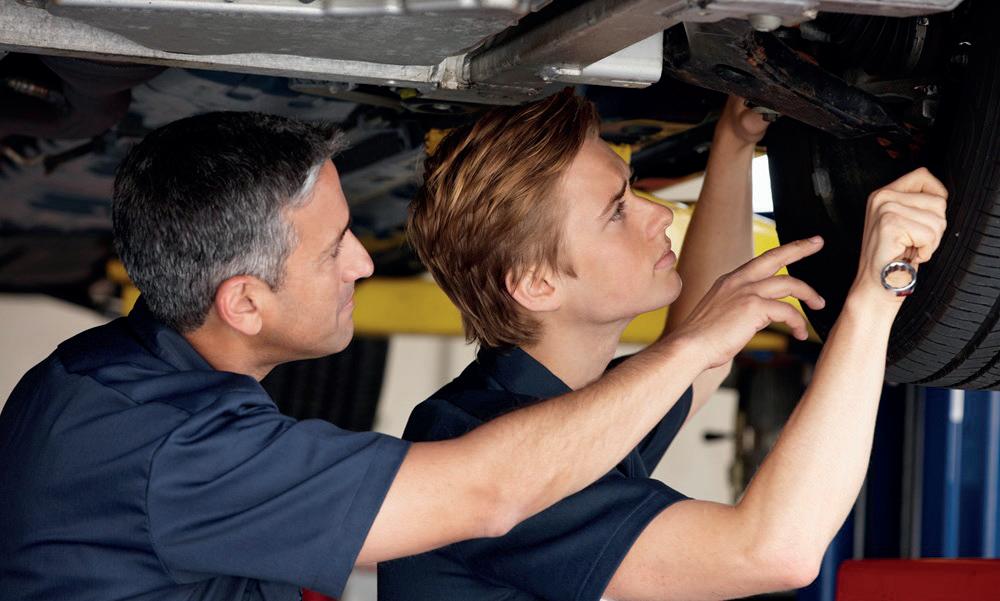

Schaeffler is urging garages to step into the spotlight and take part in a new series of videos highlighting the benefits of apprenticeships.
The first of its REPXPERT ‘wrenches and wisdom’ series of videos, filming of which is scheduled to start in the autumn, aims to reflect real-life stories and experiences.
The initial series of videos will tour UK workshops, reflecting on the journeys of those who have made a successful career in the garage industry and seeking valuable insights on how to best attract fresh talent.
Schaeffler Automotive
Aftermarket UK sales and marketing director, Matthew Selby, said yesterday: “We are calling on garages to register their interest in participating and sharing their unique perspectives.
“It’s a fantastic opportunity to showcase your personal journey into the trade… or to offer innovative ideas on how to engage and inspire the next generation of automotive technicians.”
Aftermarket reported in May that Schaeffler had hailed its first national REPXPERT conference for UK garages as a success.
More than 200 attended Coventry’s Manufacturing Training Centre for the event, which was designed to capitalise on the company’s regional REPXPERT Academy Live events.
One of the fundamentals of businesses managing the e ective resolution of complaints from customers, should they arise, is to have a set process embedded within their company policy to help address disputes in a fair, timely, and consistent manner, thus providing consumers with visibility as to how their complaint will be handled.
Having a structured response framework in place is one of the key guidelines laid down by TMO’s longestablished Service and Repair Code, which thousands of garages across the UK today are accredited to.
It is always advisable for an organisation to put time and resource aside to resolve an issue directly with a customer in the first instance, prior to seeking third party assistance from an alternative dispute resolution (ADR) provider, such as TMO.
This is to give the best chance of safeguarding open and constructive dialogue with the customer and maintaining a positive relationship in the long run.
Taking proactive steps to bring a dispute to a close to the satisfaction of a consumer may equally help o set the chance of negative reviews appearing
on public-facing online platforms, which could compromise the business’s reputation.
When using an ADR provider such as TMO, a business has up to eight weeks from when a consumer first lodges a complaint, to provide a formal response in writing once it has passed through internal procedures.
In fact, this does not prevent an outcome being o ered much sooner, should circumstances allow. It is only once a consumer has given a business a chance to have their say that they can then approach an ADR body for help, rather than vice versa. For businesses who do not provide the opportunity for ADR for their customers, the provision of a response may be subject to di erent timescales.
There are critical elements that should be incorporated into a business’s customer complaints handling process to make it both streamlined, receptive, and e cient — see checklist.
Despite concerted e orts on both sides, there are of course no guarantees that an internal complaints handling process will deliver a mutually agreeable solution.
However, it is important to demonstrate to a customer that protocol has been followed, and

Bill Fennell, chief ombudsman and MD at The Motor Ombudsman, looks at the essentials of an e ective and fair in-house customer complaints handling process to help bring disputes to a close, swiftly and fairly
that all possible avenues have been exhausted internally. This shows that a business values the customer, whilst demonstrating high standards of care and service.
Visit www.TheMotorOmbudsman. org/join for more information about accreditation to TMO’s Service and Repair Code.
● Have dedicated point of contacts responsible for managing and resolving complaints who are ideally trained or experienced in this area;
Taking proactive steps to bring a dispute to a close to a consumer’s satisfaction may help o set the chance of negative reviews
● Be clear about how complaints can be submitted by consumers and ensure that any processes are user-friendly from beginning to end — and that reasonable adjustments are made, eg for those who may be considered vulnerable, or find the use of the English language di cult;
● Maintain a written record of all communications, as verbal conversations are much more di cult to quantify should a complaint be passed to an ADR provider;
● Keep the customer informed about the progress of their complaint;
● O er fair and practical solutions to the consumer’s issue(s);
● Collect feedback from customers on the handling of their complaint, to help identify possible areas for improvement, and to use disputes as a constructive learning opportunity for sta feedback.






































































It’s a wrap — and what a show!
More than 5,000 industry professionals, mainly garage and workshop owners, technicians and bodyshop experts, attended the UK Garage & Bodyshop Event at the NEC Birmingham.












UKGBS event director Joanne Knowles said the June event surpassed all expectations with a significant increase in attendance from the inaugural edition in 2022.
Interactive exhibitions, live demonstrations and workshops were a feature of the event, plus more than 100 hours of seminars led by more than 80 industry experts. The event featured 120 exhibitors that combined to a total of 180 suppliers.

Alongside the event the Independent Automotive Aftermarket Federation held the second edition of the Automechanika Birmingham Garage Awards.




More than 25 new products were launched at UKGBS, highlighting advancements in service and repair products, diagnostics, and garage equipment.
A key feature was the new Modern Garage, sponsored by LKQ Euro Car Parts, designed for business owners and managers to equip themselves with the tools, technology, and expertise to service and repair modern vehicles.



LKQ also won the UKGBS Customer Engagement Award for the third year running — receiving £1,500 prize money which it donated to mental health charity, Ben.


















As Aftermarket went to press, the UK was just days away from the general election. This Spotlight feature highlights a pre-poll NFDA survey on its members’ priorities for the next government — and finds out key ‘asks’ of the new transport secretary from a leading industry CEO

Skills shortages among technicians, apprentice technicians and bodyshop apprentices have emerged as among key priorities the automotive sector wants help from the next government to tackle, according to a survey conducted by the National Franchised Dealers Association.
Dealerships were asked about areas of their business where they are
currently experiencing skills shortages and 82% of respondents noted ‘technicians’ (see fig.1), while 53% identified ‘sales executives’.
The top three current most important issues that dealerships said are affecting their business are slowing demand in EVs and meeting zero emission vehicle (ZEV) mandate targets — 69% ranked this as their first choice.


Attracting and retaining quality staff/ skills shortage was ranked (33%) by respondents as their second choice. The lack of charging infrastructure was also a prominent concern (24%).
According to the survey, the top three most important issues that dealerships want the next government to address are:
l Restimulating the private EV market (41% ranked this as their first choice);

l Reforming business rates followed closely behind (32% ranked this as their first choice);
l Increasing and improving EV charging infrastructure was the most frequently ranked second choice (27%).
Many dealerships rated consumer demand for non-ICE vehicles for May 2024 as ‘very weak’ with 46%. Meanwhile, 44% of respondents noted they were ‘pessimistic’ for their business’ trading performance for the second half of the year.
Dealerships were asked how much pressure they are receiving from their respective manufacturers to sell electric models and meet the ZEV mandate target for this year. Nearly 40% (see fig.2), responded ‘a great deal’ while 32% said ‘a moderate amount’.
Respondents were also surveyed about the important issues they would like to see tackled by the new government.
NFDA chief executive Sue Robinson said the survey was designed to gather members’ views about the state of the market and current challenges affecting their businesses.
“The results illustrate the current challenges dealerships are facing and underscore important areas for the next government to address.”
In the survey, dealerships have highlighted the sector’s persistent skills shortage, restimulating the private EV market and reforming business rates as fundamental areas which will need addressing from the next government, Robinson said.
“NFDA has consistently raised these issues with the previous government. Once the election has concluded and the dust settles, it is crucial for the next government to work with NFDA and the wider industry to tackle the concerns of dealerships and consumers alike.”
The survey was conducted between May 30 and June 14. A total of 51 responses were received from various franchised dealership groups across the UK, collectively representing more than 300 sites.
The UK’s next transport secretary must lead the way on enshrining open access to repairs data for the independent aftermarket, as well as pushing for greater incentives for SMEs to encourage investment in skills and equipment, according to Kevan Wooden, CEO of LKQ UK & Ireland.
Wooden said: “As we’ve seen over the last few years, things like block exemption and MOT reform could have severely disrupted the industry if the sector hadn’t come together to keep its political advocacy both loud and proactive.”
Wooden says his own views fall broadly into two camps, the first being the rights to repair and connect.
“The UK’s new block exemption regulations were a huge win for the industry. But the pace at which vehicles continue to evolve means we need to enshrine the principles of open access for the independent aftermarket permanently into British laws.
“We also need political support for a framework in which the aftermarket and OEMs can collaborate to create a supply chain for the repair of EV batteries. This should help to stem the tide of unnecessary vehicle write-offs and waste that’s damaging the residual value of BEVs.”
The need to support small businesses is another priority. He said SMEs are the backbone of the independent aftermarket but, like many small businesses, are disproportionately affected by business rates, energy costs — where garages and bodyshops especially are big users — and the cost of disposing of waste.

“And the pace of change in the automotive sector means the aftermarket’s SMEs are particularly exposed to the challenges of technological change and a skills crisis.
“To support their need to invest in new equipment, such as to service ADAS vehicles as might be required in future MOT tests, as well as training, they need greater incentives through tax breaks to support the outlay required.”
Wooden added: “We also need to look at the Apprenticeship Levy, which now does more harm than good, especially to larger garages. Most alarmingly, since its introduction in 2017 the number of apprentices starting in SMEs has plummeted by 49%.
“As an industry of some 30,000 businesses, employing 300,000 people across every region of the UK, the aftermarket should be listened to and supported. We intend to make sure whoever triumphs in the general election gets the message.”


Lubricant manufacturer FUCHS has launched its Advanced Circular Technologies (ACT) label, encompassing all tech or materials that have been redesigned, based on renewable materials or recycling technologies. Products launched under the ACT umbrella in May included TITAN ATF (6009, 6008, 6006, 4400), TITAN CVTF
FUCHS said more products are likely to join the line-up after securing industry qualifications, as the firm helps reduce CO2 emissions and support customers to become more sustainable while also providing performanceenhancing products.
Lubricant packaging is also part of ACT’s drive to a circular economy.
FUCHS launched its automotive core bottle design in 2021 and its corporate small packages have since evolved to contain at least 30% post-consumer recycled (PCR) material globally.
The redesign ensures “every last drop of lubricant” is used, FUCHS said. The company is also working towards the ultimate goal of 100% PCR material. www.fuchs.com/de/en/act
Zeller+Gmelin has introduced a multi-purpose grease based on a novel calcium as it expands its product range to include sustainable and resource-saving alternatives.
The lubricants firm said this particularly applies to lubricating greases that contain the sought-after, non-renewable raw material lithium hydroxide.
This is now being replaced by a calcium hybrid thickener specially developed in the Zeller+Gmelin laboratories, the company confirmed in May.
The new Divinol Multipurpose Grease 2 Li-free is not only impressive in terms of sustainability. According to the manufacturer, the greases thickened with it have similar characteristics to the well-known lithium greases.
applications such as machines, fans,
With a temperature range of -30 to +120°C, it is ideal for the lubrication of roller and plain bearings in various applications such as machines, fans, pumps, presses and calendars.

Lithium hydroxide is one of the key raw materials for the global battery industry and could become available in ever smaller quantities in the future, the company said.
As a sustainability-oriented company, Zeller+Gmelin said it has a responsibility to increase the proportion of resourcesaving lubricating greases.
Christian Stapper, product manager for lubricating greases at Zeller+Gmelin, said: “In times like these, our customers want more security
in the supply chain — that is less dependence on the international raw materials market and short








Verification of Lubricant Specifications chairman Harald Oosting advises why engine oil selection is so critical when working on classic car engines and how to identify the right product
Classic cars are a wonderful part of our automotive heritage and a joy to welcome into your workshop. But they may present more of a challenge when it comes to servicing. Classic cars can be quite unique, with different levels of modernisation, and parts can be hard to source.
Engine oil requires careful attention as well. Lubricant technology has evolved significantly over recent decades to meet government requirements for reduced emissions and consumer needs for economy and performance.
In modern vehicles, smaller capacity engines are running at higher power outputs to maximise efficiency, deliver fuel economy and reduce emissions. Longer oil drain intervals, taken together with smaller sumps, have created the need for less viscous, synthetic or semisynthetic oils to provide the lubrication required in these challenging conditions.
The latest formulations of highly efficient, ultra-low viscosity lubricants, such as SAE 0W-16, may not be suitable for classic vehicles. Higher viscosity products such as SAE 20W-50 might be required, as classic car engines are generally lower revving. Backwards compatibility of modern engine oils in terms of SAE viscosity and the
performance specifications claimed cannot be assumed.
Many lubricant manufacturers offer a range of classic car engine oils specifically designed to meet the needs of older engines.
These higher viscosity oils include a unique blend of additives with detergent and dispersant properties to ensure good lubricant film strength and smooth running while protecting engine components and ensuring that any unwanted contaminants end up in the sump instead of harming components.
Engine additives have also been developed for classic cars. However, lubricant technology is a fine balance of chemistry. At VLS, we don’t recommend the addition of standalone additives if the engine oil is used in line with the manufacturer recommendations and service intervals are maintained, as they may interfere with the workings of oils that have been already specifically designed for classic engines.
For modern vehicles, choosing the right engine oil is made much easier by online vehicle databases that allow you to search by the vehicle number plate. Classic car oil finders are also available, which can help identify the right oil for the classic cars in your workshop. If in doubt, refer to the original vehicle

handbook or the servicing and warranty handbook, contact the OEM or consult a lubricant manufacturer that produces its own range of classic car oils. Their technical department should be able to advise if an oil is suitable for your application. Whether it’s a cherished classic or an innovative hybrid, using the wrong oil really does matter. It risks accelerated wear to gears, bearings and other vital components. Left unchecked, it could lead to eventual engine failure, meaning higher maintenance costs for your customers and potential damage to your business’ reputation.
Don’t run the risk. Take time to check that the engine oil you select is suitable for that particular vehicle and consult external sources of information or suppliers if needed.
VLS is an independent organisation providing a credible and trusted means to verify lubricant specifications, bringing transparency to the lubricant market place and protecting and educating end users. www.ukla-vls.org.uk
















































































































































To mark Clean Air Day on June 20, Fueltone Pro emphasised the need for the automotive aftermarket to unite in promoting sustainable solutions that reduce vehicle emissions.
Robbie Gray, chairman of Fueltone Pro, said as the UK approaches the 2030 ban on the production of ICE vehicles, such vehicles will still remain on our roads for many years.
“We must ensure we’re doing our bit to make them as clean as possible.”
Vehicle emissions are a critical yet often overlooked aspect of motoring. Most vehicles undergo exhaust emissions testing as part of their MOT, utilising meters for accuracy. However, petrol vehicles used before August 1975 and diesel vehicles

used before January 1980 are still tested visually. This highlights the need for e ective emission-reducing solutions.


Fueltone Pro o ers a range of products designed to address this issue. From diesel particulate filter cleaners to advanced fuel additives, its products are developed through rigorous research and field trials.
“Vehicle emissions can be closely monitored and managed with the right products and services available in the aftermarket,” said Gray.
According to Fueltone Pro, Independent tests have shown its additives can yield up to a 14% increase in fuel e ciency and up to an 86% reduction in particulate emissions.
The company said such advancements are crucial as more ultra low emission zones and clean air zones are introduced across the UK. Visit https://fueltone.pro for more information.
17,274 Average Circulation per issue, July 22 - June 23. ABC. See it. Believe it. Trust it.

Synonymous with trust, professionalism, and tradition, NAPA highlights its commitment to making the customer experience the best it can be
Since being founded in 1925, NAPA has become one of North America’s leading brands in automotive parts, and that reputation is now quickly spreading worldwide.
The comprehensive NAPA range of lubricants has been developed in partnership with Valvoline using the most advanced technologies and highest quality base oils available. Cutting-edge research and rigorous product testing guarantee that NAPA lubricants surpass the ever-evolving demands of the world’s leading engine and driveline manufacturers.
The range is backed by a 100% manufacturer’s warranty guarantee (providing the application is as given in the NAPA technical data sheet), delivering the quality assurance everyone has come to expect of NAPA. NAPA lubricants protect your investment — all for a competitive price with rapid delivery. And that’s not all.
matter what concerns you have. Speak to one of our NAPA oil experts at oilsupport@ napaautoparts.eu or call 03333 136597.
demands of the world’s leading engine


NAPA has 99 years of experience in the automotive aftermarket, so all NAPA ranges come full to the brim with NAPA know-how. Technical support from the experts is at your fingertips whenever you need it, no

Giving every customer the confidence and convenience they deserve is another key foundation of the NAPA experience — and finding the right lubricant is no exception.
The full NAPA lubricants catalogue can be browsed freely on two parts of the website: Light vehicle lubricants & fluids, and commercial vehicle lubricants & fluids. But we don’t stop there.
With our comprehensive oil finder search engine, you can simply search by your vehicle registration number — or by make and model — and find the lubricants best suited for your vehicle.


Whether you need lubricants for cars, LCVs, trucks, buses, agricultural or construction equipment, NAPA’s
oil finder — https://napaautoparts. eu/en/oil-lookup — can save you the headache of hunting for them yourself.

Checking brake hoses and cables is a fundamental part of brake-system servicing, during which the condition of all brake pads, brake discs and brake fluids is inspected.
Bosch brake hoses are subject to thorough testing. Pressure, expansion, burst and tensile-strength tests are conducted to this end.
Many standard tests for original equipment are also performed on Bosch brake cables. They are exposed to a saltwater spray in addition to having their performance, temperature resistance and
material fatigue during loadcycling operation checked.
Bosch brake hoses comprise several layers of rubber compounds and braided sheathing for reinforcement.
The brake-fluid supply lines and the cable for the parking brake are subject to high levels of stress. Weather conditions, moisture, road salt and oil make for an aggressive and punishing environment.
However, mechanical stress is also high, and it is not just short-term pressure peaks of more than 180 bar in the brake system that brake hoses need to deal with.
www.boschaftermarket.com/gb/en
Award-winning online distributor PartsinMotion. co.uk has expanded its Brembo braking range by five times the part numbers, as the supplier looks to cover more of the ever-growing vehicle parc.
Brembo’s new-to-range components includes brake pads, brake discs and calipers to cover popular vehicle applications such as BMW 520D, JAGUAR XF X250, NISSAN QASHQAI J11 1.5D, HONDA CIVIC FN2 TypeR 2.0, RANGE ROVER EVOQUE 2.2D, RENAULT CLIO KR, Mk3, Mk4 and



MERCEDES C220d 2.2D.
Matt Gates, director at PartsinMotion.co.uk said: “Braking is a safety-critical component and our range o ers technicians the very best in braking solutions, as well as the best availability, vehicle coverage and most competitive prices.”
Automotive accessory specialist Ring Automotive has launched a flat tyre repair kit that provides a temporary fix for a puncture.
The kit, RTK6, includes a particle gel sealant, which is a liquid sealant with through valve technology, as well as Ring’s ‘tried and tested’ inflator, the RAC610, so drivers can fix their tyre quickly and easily.
The sealant included in the RTK6 is a direct replacement for original equipment tyre sealant and will seal punctures up to 6mm in size and can be easily washed out with water allowing, the tyre to be repaired if necessary. The RTK6 sealant is non-toxic and noncorrosive.
https://osram.co.uk/am
Every tyre sealant will have a use by date, which is typically between 3-5 years after being manufactured. While tyre sealant is not checked at MOTs, it is important to make sure tyre sealant is in date before use or otherwise, when the time comes to use it, it will be ine ective.
The compressor supplied in the RTK6 unit is Ring’s RAC610 analogue tyre inflator.


The specialist for brake, steering and suspension parts under the umbrella of SBS Automotive is adding 209 part numbers to its portfolio, which together cover more than 7,300 vehicle applications. In the markets in which NK is active, distributors and workshops will soon be able to rely on the company’s proven quality for a large number of
further service cases: With the announced expansion of the product range, the total number of SKUs will grow to 1,680, while market coverage in the core markets will increase to 93.5%.
NK brake hoses are available for the first time for various versions of the Mercedes CLA 250, GLA 250 and A220 from model year 2021 onwards.
Bridgestone has launched its EV-ready Turanza All Season 6 ENLITEN tyres with DriveGuard run-flat technology.
Bridgestone said the latest addition to its portfolio allows drivers to maintain control of their vehicles and travel safely after a puncture for 80km at up to 80km/h.
Stefano Sanchini, VP for consumer replacement Europe, the Middle East and Africa, said the single set of tyres performs in all seasons.
Testing and certification organisation TÜV SÜD
said the tyres also o er best-in-class wet braking and excellent braking performance in dry and snowy conditions, according to Bridgestone.
In addition, the tyres also provide 20% better mileage than their predecessor for cost e ciency and reduced environmental impact.
Turanza All Season 6 ENLITEN will be available in 20 top selling sizes from 16 to 19 inches. Beginning in September 2024, 18 sizes will be available and the remaining two sizes will be released in January 2025.

www.bridgestone.co.uk
Braking specialist TMD Friction UK has introduced four new brake discs, one new brake pad and an update to its premium Textar brand range.

https://textar.com/en

Ivor Searle is a leading UK producer of quality remanufactured automotive major units, o ering an all-makes programme of petrol and diesel engines, cylinder heads, gearboxes and turbos for cars and LCVs.
Costing up to 40% less than OE, the Ivor Searle product range covers over 90% of the UK’s vehicle parc. Ivor Searle also o ers a customer own unit engine remanufacturing service for virtually any car or LCV application.
All Ivor Searle engines, cylinder heads, gearboxes are covered by a 12-month
unlimited mileage parts and labour warranty, while a two-year warranty covers all turbochargers.
The remanufacturer holds comprehensive stocks across all product lines to ensure first class customer service and minimise vehicle downtime. Free next-day UK mainland delivery is also provided for stock items ordered before 3.30pm.
Ivor Searle has an extensive UK-wide distributor network, so no matter where you are, you’re never far away from a quality Ivor Searle product.
Textar provides premium OE braking for all car parc requirements, from super minis to heavy trucks, over hybrids up to EVs.
The new products include brake discs for the Renault Kangoo.
MAHLE Aftermarket has made technical enhancements to the OX 1075D oil filter insert, making it even easier to install.

OX 1075D now features a fleece sealing disc that ensures a perfect seal between the clean and dirty sides of the oil circuit.
One of the most striking changes to the design of the filter insert is the elimination of the four positioning aids. A new plastic alloy allows for plastic-to-plastic sealing, eliminating the need for a rubber sealing ring.



John Shepherd gets an exclusive behind-the-scenes tour of the high-tech cavernous aftermarket treasure trove in Sta ordshire, where LKQ Euro Car Parts works its magic around the clock to support a supply chain involving thousands of UK garages every week
Idecided to leave my ageing, but nonetheless reliable Toyota Rav4 resting back home in Sussex for my visit to LKQ Euro Car Parts’ hub in Tamworth.
Like me, the 22-year-old motor has far too many miles on the clock, although I
have to say its bodywork can still gleam (unlike mine), but I try to keep long journeys in what was once my Dad’s car to a minimum these days.
There’s always a lingering concern that this could be the trip that necessitates a call to the breakdown

service — not to mention the potential scramble and cost of finding parts.
But on reflection, more than enough help would have been at hand in theory, as I soon realised when my taxi pulled up outside LKQ’s mighty Tamworth Terminal 2 — better known as T2 — a veritable Aladdin’s cave of all that any motorist, or dealership for that matter, might ever need. Although I doubt whether even Aladdin’s genie could conjure up what is a car parts ‘oasis’ of truly Biblical proportions.
Approaching T2 is impressive enough. The site is vast and I’d done more than enough steps for the day just walking across the car park and through the security perimeter to reception.
Think of one of those fabulous James Bond film sets: Visitors are greeted at the gleaming, hi-tech reception area. “We’ve been expecting you,” I’m told, as my guest pass to this automotive labyrinth is handed over

with due reverence.
From reception, I caught a sneak peek of the cavernous warehousing operation that would be the highlight of my site visit as staff slipped in and out through a side door. But ‘warehouse’ does not do this place justice as I found out when, once correctly-attired with regulatory helmet and protective clothing, I was finally ushered inside.
I quickly dispelled my comparisons with 007 movie sets. For sci-fi afficionados, I can best describe the sight that met my eyes as ‘the Matrix meets the Tardis’, except that T2 appeared to be far, far bigger on the inside than the latter.
As the pictures show, this was a

finely-tuned city where, although it is the workplace of some 800 employees, their number appeared to be dwarfed, quite literally, by the digitalised, finetuned hubbub of activity of robots and machines that constantly zoom around this 1 million sq ft distribution centre. Automation is the lifeblood of T2’s nerve centre although the human workforce is there to ensure all runs smoothly in this highly efficient partnership.
Dizzying heights are nothing to these bionic helpers as they lift boxes and pallets of all manner of auto parts and accessories into their correct place, ensuring everything is ready for despatch when required, while a vast array of systems keep their human colleagues informed of progress constantly, every second of the working day and night.
To give an example of the operation involved, I was shown the arrival of just one pallet containing up to 1,300 oil filters. These were set to be checked and sorted and prepared for their onward destination, along with an infinite array of other products.
T2 is more than a hub. It’s at the heart of the aftermarket supply chain, sourcing and distributing millions of products, processing and delivering in excess of 55,000 orders daily and serving 40,000-plus garages across the UK every week.
More than 80% of orders placed with
LKQ are over the phone. Those placed before 6pm are guaranteed for delivery by 6am the following morning.
In terms of its sustainability credentials, the company has a range of activities including recycling around 133 tonnes of cardboard packaging a month together with nine tonnes of clear plastic. In addition, around 33 tonnes of mixed metals are processed every month.
LKQ is also adding solar power facilities to support its operations and stepping up the purchasing of electricity generated from renewables.
LKQ Euro Car Parts group procurement director Anthony McAteer

said the firm’s standard service level agreement is from 30 minutes. However, like all companies in the sector there have been challenges.
“As an industry we are still feeling the impact of the pandemic, which of course hit the auto sector hard.
“On top of that, there are fewer cars that require an MOT and, when they do, that work is often being delayed by motorists.”
McAteer said that since the pandemic, many more people have become accustomed to working from home — which has slashed car usage.
“It really is a perfect storm with more people working remotely. Then
LKQ UK & Ireland is an integrated group of four market-leading businesses, which together comprise the region’s largest and leading distributor of parts and accessories for all makes of car, motorbike and light commercial vehicle, HGV, bus and coach, and static and touring caravan, motorhome and marine vehicle.
The business is part of the LKQ Corporation. Each of LKQ UK & Ireland’s businesses — LKQ Euro Car Parts, LKQ Bodyshop, LKQ Leisure and Marine and Digraph — are the biggest in their respective markets.
LKQ Europe revenue alone was around £1.5 billion in 2023 compared to just £270 million in 2010.
The operation involves three national distribution centres, a total of more than half-a-million stocked parts, 127,000 independent supply workshops and 900,00 SKUs.
when they do need to get an MOT and perhaps pick up just a few advisories, they are probably not going to get that work done straight away to try and save on cost.”
McAteer said the UK is now at the point that the average age of a vehicle in the car parc is about nine years whereas it used to be seven years.
Then there is the undisputed shortage of technicians in the UK which has impacted the garage sector and of course the supply chain.
Yet despite the enormous operation involved at T2, it’s a relative cog in the mighty wheel of the global LKQ Corporation, a Fortune 500 company which describes itself as the world’s largest auto parts provider.
It’s all a far cry from Tamworth’s roots as a Saxon settlement. The town’s importance grew when King Offa of Mercia nurtured a kingdom there that was roughly the size of the English Midlands during his reign from 755 to 796.
Down the centuries, Tamworth has made agricultural machines, boasted a paper-making industry in addition to textiles and aluminium, and the area was a centre of production for Reliant cars until 1999.
Today, T2 is arguably Tamworth’s industrial crowning glory which, by its proximity to the centre of the Midlands’ rail and roads network, has become a jewel in the supply chain crown of the UK’s aftermarket sector.
Through the LKQ Academy, the company announced last March that it was opening 10 new training centres across the UK, the most recent being in Manchester.
Andy Savva, better known as The Garage Inspector, was signed up for a three-year deal to deliver garage management training.
The academy, a leading provider of automotive training, is opening 10 new training centres across the UK — in a £500,000 investment to help garages and bodyshops prosper by upskilling technicians and supporting staff.
The award-winning training arm of LKQ UK & Ireland has already opened two UK centres this year, with new sites in Glasgow and at its revamped Tamworth T1 base.
Plans for a further three sites set for the south of England will be announced this year with four more centres opening in 2025.
The 10 new sites will add to LKQ Academy’s existing centres in Sunderland and Bristol, alongside 26 external sites, creating a total capacity of 11,000 places on 80 different courses.
Courses range from delivering the skills needed to service electric vehicles, to helping support staff become more
adept at handling customers’ technical queries.
Last year the LKQ Academy launched a course designed to help bodyshops take action on sustainability, which sits alongside a range of course designed specifically for bodyshop technicians.
Alongside its in-person training, the LKQ Academy provides hundreds of e-learning courses, with new training soon to launch on topics from servicing hydrogen vehicles to identifying and fixing AdBlue system faults.
Lee Chapman, head of support, LKQ Academy, said: “UK expansion is essential to our mission to close the skills gap in the industry, and to help the independent aftermarket keep pace with the dealers, while adapting to major changes from digitalisation and meeting ever changing consumer demands for high standards of customer service, while adapting to work with smarter cleaner and greener vehicles.
“We invest all proceeds from the LKQ Academy back into our training, which means all of our are courses part-funded to provide great value for customers.”
All LKQ Academy courses are fully accredited by the Institute of the Motor Industry.
Despite the challenges of running an older vehicle, many enthusiasts aspire to the agony and ecstasy of ownership, but keeping these cars on the road is a constant challenge — as Klarius Products’ R&D head Doug Bentley explains — and the UK aftermarket plays a vital role in keeping automotive history alive for future generations
Whether they are hibernating in garages, nestled under car covers or more likely, in pieces on the driveway, we are a nation of classic car lovers.
Classic car ownership conjures romantic images of sunny drives on open country roads, preferably to a car show or pub lunch. That’s the fantasy anyway, but all too often the reality is that the vehicle will spend more time at the service garage than at home — especially if it refuses to start.
Consequently, UK classic car culture fuels a market that was estimated, according to Statista, to be worth around £1.2 billion in 2023.
Cars have a hard life on wet, potholed and salted British roads, and this is especially true for older models. In the UK, we classify any car over 40 years old as a historic vehicle.
According to the DVLA, there were 338,697 classic cars registered as of the end of 2023. HMRC qualifies a classic car as anything over 15 years old and £15,000 in value, but this falls more into the modern classic category.
Import laws in the US draw the line at 25 years. Either way, what all these vehicles share is an evocative driving experience that modern machinery can’t match.
So, what are the problems of classic car ownership? Well, for a start, automotive engineering has moved on quite a bit since the 20th century.
Classic cars were not built to the standards of today; park a diminutive MGB next to a current generation MX5 to see the progress. Furthermore, classics can be blighted, or blessed, depending on your opinion, with quirky
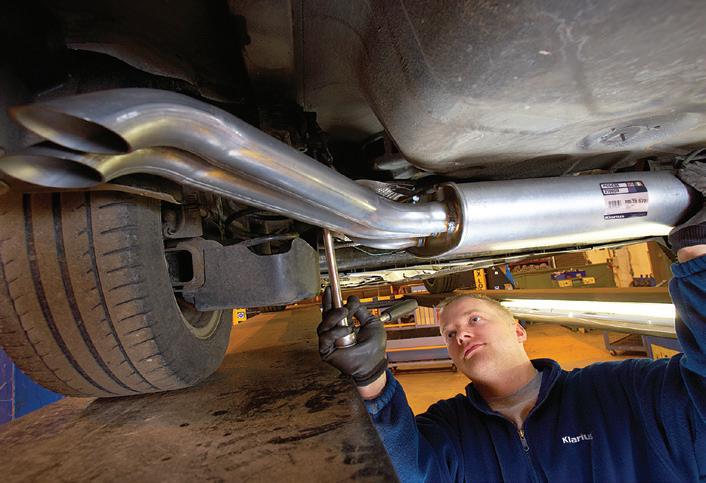
design choices that even when new, didn’t promote reliability.
Just ask Triumph Stag owners. Materials could be of poor standard, which meant some vehicles simply rusted to dust. Looking at you, Lancia Beta. Build quality varied wildly too, from the bomb proof approach of Mercedes in its heyday to the famous ‘that’ll do’ attitude of British Leyland.
However, maintenance is still the biggest concern. Owners often need to find a specialist garage that has experience with their car, as it would be unreasonable to expect your local MOT centre to properly maintain a classic Ferrari.
Then, there is sourcing parts for repairs. Typically, automotive brands will charge exorbitant prices for legacy parts, or won’t offer them at all. Some marques may not exist anymore, making hunting for spares laborious and timeconsuming.
Help is at hand through. Throughout the UK, aftermarket brands offer a wide range of quality replacement components to fit classic cars, even when manufacturer support is unavailable. Often, these components are available at a more competitive price and on shorter lead times, helping owners save money and garages speed up the turnaround for repairs. With
the rich automotive heritage of the UK and plethora of suppliers, quality replacement parts are accessible for even the most obscure models.
More than that, modern technology is providing new ways to produce and improve parts. Additive manufacturing allows any component to be replicated. Furthermore, 3D printing, and custom fabrication offers the opportunity to specify improved materials, increasing durability and combating the mortal enemy of any classic car, corrosion. However, taking an entirely custom approach can be very costly.
For those running a classic car without the budget for a full-blown ‘restomod’ project, it pays to know which aftermarket suppliers offer a range of parts to fit the vehicle. At Klarius Products, we support this thanks to our free online catalogue, where garage technicians and car owners can use the make, model and production year to browse over 11,000 available exhausts, many for classic cars.
Exposed to road conditions, a vintage exhaust won’t last, but an upgraded aluminised steel replacement that matches the original design will.
Ultimately, keeping classic cars on the road is a responsibility shared between the owner, service garages and the aftermarket. While everyone can’t afford to ‘restomod’ an old 911, many enthusiasts are looking for quality replacement parts that will keep their pride and joy running for years to come. By providing these components with added value and convenience, the aftermarket can make owning and repairing these evocative vehicles a better experience for everyone.
https://www.klarius.eu
Lynn Loughmiller, software engineering manager at DELMIAWorks, looks at how production and process manufacturing monitoring systems work to improve shop floor performance across industries including the automotive sector
Manufacturers face more pressure than ever to deliver quality products quickly, but any number of variables can throw off the best-planned production schedule — from machine and human error to unexpected downtime and materials shortages.
Real-time production monitoring and process monitoring work in concert to provide immediate insights that enable manufacturers to rapidly identify and address potential issues before they impact the ability to deliver on customer commitments.
Production monitoring and process monitoring both rely on real-time data from smart machines and sensors on equipment. However, they are effectively two different parts of a recipe for gaining insights into what is happening on the shop floor at any given time.
Production monitoring is similar to the top part of a recipe that lists the ingredients, centring around parts and materials. It tracks the production of parts starting from the raw material used, such as a plastic pellet or metal sheet, to counting parts as they are created, tracking their movement into inventory, and recording any associated scrap.
Process monitoring is
much like the bottom of the recipe that looks at how things are being done. It focuses on conditions that affect processes, such as whether machine cycle times, temperatures, amperages, and lubrication levels are within specified parameters. When real-time data from manufacturing monitoring systems is shared with a manufacturer’s enterprise resource planning (ERP), manufacturing execution system (MES), and other related software, the information can automatically trigger actions and support decision-making throughout the business.
The following are five examples of how production monitoring and process monitoring — either separately or working together — can be used to improve operations.
l Inventory management: Production monitoring plays an integral role in ensuring that enough raw materials are in inventory because it tracks machine cycle times, which can be used to predict when a manufacturer will run out of a specific material.
Production monitoring can also capture when more scrap than projected is being produced, signalling not just a potential production problem but also the need to re-order a raw material
sooner. An MES storing real-time production and process monitoring data can feed this information into the purchasing model of an ERP system, which then auto-generates purchase orders for materials, ensuring the availability of materials to support production runs while also improving utilisation.
l Warehouse management: Production monitoring of machine cycles can help manufacturers get raw materials to the correct machine when they’re needed and avoid downtime. Here, real-time data in the integrated MES system is fed into warehouse management software, which uses this information to automatically direct forklift operators or other workers on where to deliver raw materials for use at a specific machine.
l Quality control and compliance: Manufacturers can use both monitoring approaches to ensure quality. Similarly, process monitoring can capture factors, such as machine temperatures falling below acceptable parameters. In either case, the data can be used to automatically trigger automatic rejections of the affected parts. Additionally, process monitoring data fed into ERP and quality management systems can simplify compliance and
certification by automatically verifying and documenting that parts were made in accordance with specified parameters.
l Preventative maintenance: The two types of monitoring can be used to indicate when to perform machine maintenance. For example, production monitoring can capture that a particular machine has just produced 300,000 parts over several work orders and trigger a maintenance work order for that machine.
l Auto-scheduling: In those cases when a machine goes down, the part still needs to be produced. Production monitoring can show how long a work order is going to take. The data can then be shared with auto-scheduling functionality in the MES system.
The applications of production and process monitoring will continue to grow as manufacturing monitoring systems take advantage of advances in generative artificial intelligence.
AI-powered analytics and forecasts will become a critical factor in empowering manufacturers to make timely, highly informed decisions across their business.


































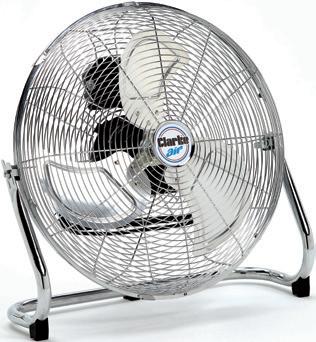








































A1’s UK sales manager Matt Hume explains the work that went into devising and implementing a full garage fit out for Fastech — in just three weeks
Creating a new workshop from the ground up can be a daunting task. Looking at a blank canvas can leave even the most experienced garage business owner wondering where to start — especially when the space in question was an office.
This was the case recently for Fastech, a multi-site garage business that works exclusively with car rental companies. The business has depots around most of the UK’s airports and was opening a new arm in Bristol. With a specific shopping list of garage equipment and a tight deadline in mind, Fastech turned to the garage equipment division of A1 ADAS Solutions Group for help.
Our first site visit was to look at an office space due to be converted into the workshop area; it took a little imagination to begin with!
Fastech was looking for advice on layout, flooring and equipment which
included diagnostic tools, tyre replacement and wheel alignment equipment, an air compressor and two and four post lifts.
Initially, we looked at the lifting equipment and recommended an EAE 4-tonne 2-post lift alongside an EAE 5-tonne 4-post wheel alignment lift with an EAE 3-tonne jacking beam.
The 2-post lift features three stage front arms and two stage rear arms which allow greater control to meet jacking points on a wide range of vehicles up to medium sized vans. The 4-post lift has front turnplates and rear slip plates to aid accurate wheel alignment results, along with a 5.2m platform to accommodate larger wheelbase vehicles with ease.
We then turned our attention to the wheel alignment system, which Fastech asked to be colour matched to the lifts. This is something we’re asked for quite frequently.
The best one for their needs was the Absolute


Alignment Bluetooth Lite Wheel Aligner. It’s a good entry level, cost-effective 6-sensor CCD 4-wheel aligner that can be operated from an Android tablet. This gives the technician greater mobility when working beneath a ramp.
For a machine with a small footprint, it has a solid, wellbuilt base unit that holds the wheel clamps with integrated chargers.
Next up, we considered the diagnostic equipment. For this, we supplied the Autel MS906s pro eu, a compact but powerful diagnostic tool with a huge range of service functions. This was complemented with an Autel multi-security gateway unlock, which is the ideal solution for workshops dealing with newer vehicles; something particularly relevant for Fastech’s customers.
For the air compressor, we chose the Nuair B3800BPRO/200 FM3. It has a 200-litre receiver tank with a 2.2kW (3Hp) 230v motor. As a
popular workshop belt drive compressor, it’s suitable for various applications, is reliable, and consistently performs well.
Lastly, we looked at the tyre equipment requirement. Here, we wanted Fastech to be able to replace low profile tyres with ease, so we installed an EAE EE-4880ID tyre machine with ‘Assist Arm’. This added assist arm gives greater leverage and can work on low profiles without risk of damage to the alloy wheel. It was partnered with a manual input EAE EE3096V2 wheel balancer.
From Fastech’s order, through to the co-ordination of multiple teams for the full install, it took us just three weeks. This also included full on-site training for the depot’s new staff where needed.
It was indeed a fast job and it’s fantastic to see the site up and running.
Visit https:// a1diagnosticsolutions.co.uk for more information.








































Research highlights challenges for professional mechanics as some motorists say they are more anxious taking their car for an MOT than going to the dentist
More than a third (35%) of UK motorists would rather fix minor car issues themselves than pay for a professional to do it, according to research released by eBay UK.
Saving money is a key reason for savvy drivers taking it upon themselves to fix problems, but some avoid dealing with issues altogether, data indicates*.
In the study, 34% of motorists said they delayed getting MOT advisories fixed last year due to rising living costs, with another 33% stating that they were unable to a ord the repairs.
But with one in 10 claiming they “do not think advisories are big deal, it’s no wonder that nearly a quarter (22%) admitted to delaying repairs for as long as possible”, ebay said.
The UK research also revealed that
Research shows some motorists dread the prospect of an MOT more than going to the dentist, caused by a fear of the unknown
the most common MOT failure issues were inoperative lamps, reflectors and electrical equipment (23%), followed closely by suspension (18%), brake issues (14%) and defective tyres (13%), many of which could be easily avoided.

Arjang Salehi, category lead for vehicle parts and accessories at eBay UK, said the research showed 45% of motorists dread the prospect of an MOT more than going to the dentist (34%) and this anxiety is caused by fear of the unknown.
“What’s the garage going to find and how much is it going to cost to put it right — those are the biggest fears,” Salehi said.
Meanwhile, ebay said data obtained from the Driver and Vehicle Standards Agency through a freedom of information (FOI) request** across England, Wales, Scotland and Northern Ireland has identified the top 10 locations with the highest average MOT failure rates for 2023. They are:
1. Kirkcaldy - 37.38%; 2. Llandrindod Wells - 36.37%; 3. Dundee - 36.30%; 4. Truro - 36.13%; 5. Plymouth - 36.02%; 6. Exeter - 35.67%; 7. Torquay - 35.63%; 8. Salisbury - 34.20%; 9. Bristol - 34.11%; 10. Bath - 34.05%.
According to the research, the top 10 reasons for MOT failure were: 1. Lamps, reflectors and electrical equipment – 23%; 2. Suspension – 18%; 3. Brakes – 14%; 4. Tyres – 13%; 5. Visibility – 10%; 6. Body, chassis, structure – 7%; 7. Noise, emissions and leaks – 6%; 8. Steering – 4%; 9. Seat belts and supplementary restraint systems – 2%; 10. Identification of the vehicle – 0.75%.
*The research was commissioned by eBay and the survey compiled by Opinion Matters in February 2024. The total sample size was 2,056 UK car owners and current drivers aged 18+.
**The FOI request was made by eBay UK in January 2024 to the DVLA and data recorded for 2023 across test centres in the UK.
































In another ‘industry first’, Hofmann Megaplan have raised the bar yet again. Doing away with the common measuring arm to enable data input, the megaspin FAST TOUCH makes balancer set-up faster and easier than ever before. By simply lining up the integral lasers, data is entered at the touch of a button.













When shown for the first time to our own technical team and customers alike, the response was consistent –“That is like magic!”






Throw in other luxury but useful features such as touch screen display, OWB (One Weight Balance), NO CHECKSPIN technology, HUBMATCH and megaclamp automatic clamping and you have what we believe is the best price/performance ratio of any wheel balancer on the market today.















Every vehicle with a combustion engine, which therefore includes hybrids, needs effective thermal control of the engine, not only for cooling to prevent overheating, but also to achieve the quickest possible temperature build-up to reach and then maintain it at the optimum level.
The combustion process causes very high temperatures, exposing the engine’s block and its equipment to extremely high thermal stress. Furthermore, turbocharged combustion systems also need sufficient air cooling to obtain the right charge performance, and manual gearboxes, as well as power transmission units, all need active thermal management to ensure each component is operating at its design temperature to ensure the optimum performance of the powertrain.
To achieve these sometimes conflicting objectives increasingly requires electrical sensors. Although physically small, these sensors have a critical function as their signals ensure that the AC and engine cooling systems work correctly and operate at their optimum efficiencies — which also safeguards the longevity of other components.
Nissens Automotive offers engine coolant/oil temperature and AC sensors within its comprehensive range of thermal management products. These are all manufactured to Nissens
genuine quality standards, giving workshops premium grade replacement components that operate to the same performance levels as the OE part, to deliver a dependable aftermarket solution.
The genuine Nissens quality standard ensures that these, alongside the company’s other products, deliver excellent durability and working performance, as well as trouble-free fitment. In common with these other components, all the necessary installation parts whenever required by the original are included in the product box to provide a Nissens first fit solution.
Precise product identification, technical information, along with detailed drawings and complete pictures, as well as details about sensor type, thread size and connection shape data, is contained in Nissens’ online catalogue.
The current sensor range consists of more than 44 pressure sensors for automotive climate systems and nearly 50 temperature sensors for engine cooling systems, which cater for almost 74% and 60% of the European car parc respectively.
Sensors are only part of the story, as components as diverse as engine cooling radiators, oil coolers, fans, expansion tanks, water pumps and intercoolers, all

feature in the complete Nissens thermal management offering — which totals nearly 7,000 part numbers that cater for more than 30,000 OE references and as much as 93% of the European car parc in some product lines.
Central to the cooling system is the radiator, so only a replacement product of the correct design and highest quality will do for the long term.
Nissens’ radiators are produced with sturdy, durable and high-performance core construction with advanced aluminium brazing technology. Among a number of design features that ensure their suitability are cores equipped with double folded fins that reinforce them against mechanical damage and increase the total heat exchanging surface for more efficient cooling.
Another huge benefit for workshops is that Nissens’ radiators are delivered with everything that is needed for easy installation. So, dependent on the application, any caps, O-rings, nuts, clamps, plugs, gaskets, circlips, bolts, screws, hose clips and washers etc required are supplied in the box.
The company’s technical know-how, manufacturing experience and deep insight in thermal systems mean that it is flexible, able to meet emerging market needs and can supply a wide range of premium quality engine cooling components.
Nissens also offers education via live onsite sessions, online self-learning courses and technical marketing materials. It has further expanded its training concept, an educational solution for automotive professionals in the field of air conditioning, engine cooling, efficiency, and emissions. For details visit https://showroom.nissens.com
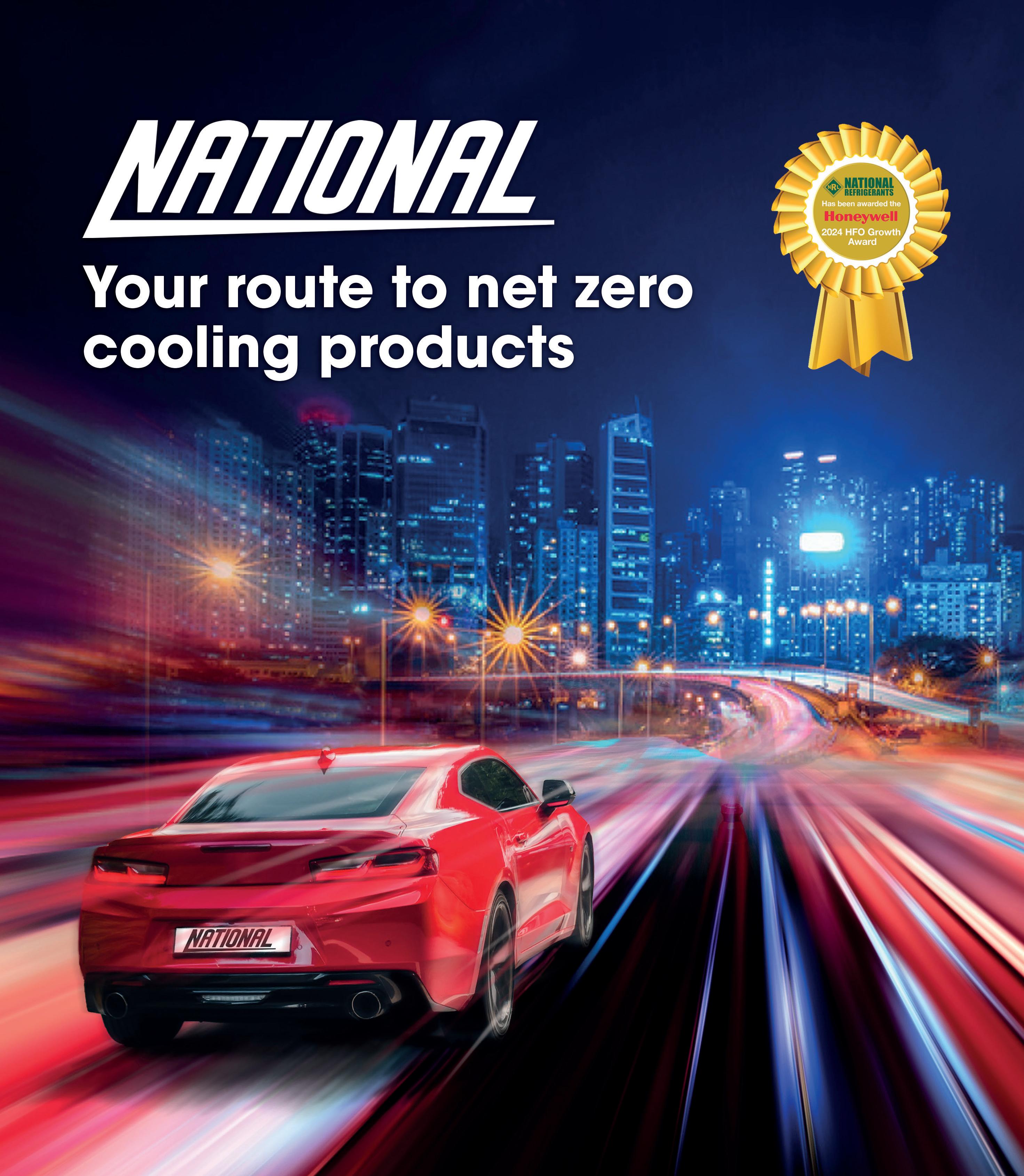



Mike Schlup, MD of Kalimex, the makers of K-Seal multi-purpose coolant leak repair, highlights the crucial role of cooling systems for the reliable and e cient operation of internal combustion engines
If anything goes wrong and is not remedied at the earliest opportunity then more serious and permanent damage can quickly occur, not just within the cooling system but in the engine as a whole.
And in the current economic climate many motorists can ill a ord a new radiator or even worse, a head gasket replacement.
As the average age of vehicles in the UK car parc continues to increase, it is more important than ever to include cooling system maintenance as a regular part of the service programme.
Inevitably many motorists will choose to skip this and will only head to their local mechanic once they have a problem. A simple radiator leak can lead to low coolant levels which will impact the ability of the system to regulate engine temperatures.
A water pump or thermostat issue can restrict coolant flow rates, which can lead to the engine overheating. Ignore this and the risk is ultimately head gasket failure or a cracked engine block or head, and eventually terminal engine failure.
Cooling system issues and the accompanying engine problems are


most likely to be seen in older vehicles, and often the cost of a mechanical repair is greater than the value of the vehicle itself.
It’s at this stage that both the workshop and the motorist should consider a coolant leak repair additive that would enable the motorist to get back on the road — at least until they can a ord to upgrade the vehicle. There is an ongoing debate about the pros and cons of coolant leak repair additives and the perceived risks that come with using them.
It is true that the old school products had a reputation for either blocking the cooling system or curdling the antifreeze (when you mix sodium silicate with ethylene glycol). But there are modern alternatives that are not only safe to use but will also make long lasting repairs rather than the old ‘justget-you-home’ mixtures.
Products that have been independently tested to the international coolant leak repair standard ASTM D3147 are a good place to start. The standard ensures that compliant products will seal leaks where they are meant to (holes up to 0.65mm)
There is an ongoing debate about the pros and cons of coolant leak repair additives and the perceived risks
but will safely flow through even the smallest waterways within the cooling system (0.85mm).
Further tests should also show that the stop leak formula does not react with antifreeze, a fairly important point.
K-Seal permanent coolant leak repair meets these standards as verified by independent tests. So, when you have a customer who needs to deal with a coolant leak urgently to get back on the road, then K-Seal is a product that you can trust.
www.kseal.com
Management of the temperatures within the engine and gearbox are key to the performance and e ciency and AVA Cooling provides workshops with the clever choice for their replacement parts needs.

The AVA engine cooling range consists of 5,300 parts, covering more than 17,000 original equipment references and encompasses fans, fan clutches, intercoolers, oil coolers, radiators and thermostats.
As important as range coverage, is the e ective identification of the necessary parts and here the brand scores again, as the AVA catalogue is considered
as one of the best and most comprehensive on the market. The quality of the product data sets it apart and subsequently guarantees accurate and dependable product identification.
In addition, AVA is also a highly experienced and knowledgeable partner that is always willing to share its insight in order to support its valued customers.
Visit https://ava-cooling. com/en/company.html for more information.

Thermostats play a key role in ensuring the correct temperature is maintained in various parts of the engine.
Manufactured to strict OE specifications, the DENSO thermostat range encompasses all types and consists of 336 part numbers that will be launched in two stages, which cater for 80% of the European car parc.
In common with all products in its comprehensive aftermarket programme, the DENSO thermostat range is support by an online


catalogue that makes identifying the correct replacement quick and easy. And DENSO thermostats are the first products in the company’s thermal management programme to be supplied in eco-friendly packaging.
Visit www.denso-am. eu for further details of the DENSO aftermarket programme.







TMD Friction, the parent company of the brake friction brand Mintex, is helping to boost best practice in brake maintenance through its professional technical training initiative, the ‘Mintex Masterclass’.
Recent masterclasses have been conducted by Scott Irwin, head of technical training, at Royton Car Services and Speedwell Garage for Brakes International in the northwest of England.
The Mintex Masterclass is a comprehensive training programme where participants receive detailed insights into best practices for braking systems.


Irwin and his team of TMD experts cover topics including correct bedding-in procedure, the selection of appropriate tools and the significance of brake system cleanliness.
These interactive workshop sessions support those eager to expand their knowledge of brakes, refine their skills and acquire new techniques. Conducted directly on the workshop floor, participants gain hands-on experience by working on vehicles.
In addition to delving into the manufacturing process, Irwin emphasised how Mintex ensures the proper functioning of its brake pads and
discs, while also highlighting common pitfalls encountered when parts are incorrectly installed.
Raising the importance of correct installation, Irwin stressed TMD’s role in saving time and costs for garages, while ensuring optimal safety and braking performance for drivers and passengers.
Workshop participants also receive access to TMD Friction’s e-learning platform.
As a leading global manufacturer of brake friction technology, with a presence in 12 countries, including the UK, TMD Friction’s award-winning training team remains committed to enhancing aftermarket skills.
www.mintex.com

FAI Automotive has launched a new braking range into its leading product portfolio as part of its commitment to providing a trusted alternative to the industry.
The brand has introduced 70 brake pads and 65 brake discs. FAI said the new collection demonstrates its ethos to delivering exceptional quality, value, and reliability.
braking range include ‘fit and forget’, as the parts come pre-coated for immediate installation, eliminating the need for greasing the axle and ensuring hassle-free fitting straight from the box. Plus, they are securely packaged to prevent rubbing and damage during transit.

semi-metallic to minimalise environmental impact, and the range comes with FAI’s comprehensive warranty.


The new braking references cover 24 million vehicles across the UK, catering to the ever-growing UK vehicle parc. Key features within the range include coated discs, designed for durability and corrosion resistance, ensuring prolonged performance and longevity.
Other USPs of the brand’s new


FAI’s brake pads are formulated as



Dominic Moxon, technical director at FAI Automotive, said: “Our focus has always been on delivering the best products that offer exceptional value to our customers. With our new braking range, we aim to strike a balance between quality and value, offering a trusted and reliable alternative brand. “We are launching with a focused range across pads and discs, with even more part numbers to be added throughout 2024.”

https://faiauto.com


While standalone garage equipment is simple to replace, some heavier, fixed position items, may prove more problematic.
In the case of brake testers, which are often installed in bespoke floor recesses in front of workshop doors, the potential for business disruption is larger. So, what can garages do to reduce both inconvenience and cost impacts?
Leaving a brake tester to fail at the end of its life creates an impossible situation where disruption is inevitable.
Therefore, being proactive is the best approach to reduce the impact of replacement, by taking control of the situation.
Talk to a few garage equipment suppliers like Straightset and work out what will fit into the old unit’s place. Understanding what is involved is also crucial.
Very often, brake testers can be replaced using the existing floor recesses. This saves both the cost and time required to dig out the existing recess to modify it to a new unit. It can also save you days in lost productivity waiting for concrete to dry.
Just replacing one brake tester with one the same is not always giving you the best bangs-per-buck. Therefore, it is always best to know the available options before deciding on the product — and the

Rollers that were originally only 600mm wide are often too small for the largest class IV vehicles. Increasing the size of the roller bed can enable you to test a wider range of vehicles, increasing potential profitability.
Uprating the roller bed to a heavier capacity would be a wise investment, and one that cannot be done retrospectively after your new unit has been installed. Brake testers can also have class I and class II adaptors for motorcycle testing.
Features such as tablet control, repeat monitors, weighbridges and many other features that could be useful to your operation are available, but not always off the shelf.
Research is key, to understand what your business needs, what it can work with, and how this may impact installation time.
Planning for a brake tester replacement ahead of time gives the opportunity to consider the options available.
A panic buy can severely limit these
EBC Brakes, which has specialist factories in the UK and US, has said its all-new six-piston big brake kit offers one giant leap forwards for the performance braking market
EBC Brakes Racing’s Apollo balanced big brake kits represent the ultimate upgrade when it comes to improving stopping power, the company said. Unlike other ‘big brake kits’ on the market, which solely supply the parts for the front axle, every EBC balanced

big brake kit is a full-vehicle upgrade and is supplied complete with matching friction rear pads to fit the original
options as you try to get your MOT bay operational again as quickly as possible. The list of DVSA-accepted equipment comes with all the information you need to ensure it is suitable for the types of vehicles you are testing.
It is also worth remembering that just because a brake tester appears on the accepted list, it does not mean they are all equal. Research is essential.
If you buy an existing business with equipment already installed, and the equipment is not already MTS DVSA connectable, you will need to either upgrade (if available from the manufacturer) or replace.
Key points to remember:
l Be aware of the condition of your existing brake tester and its service bills;
l Do not leave brake tester replacement until it becomes a panic buy;
l Think about the shortcomings in your existing equipment and what features you would like in the replacement unit;
l Talk to equipment suppliers;
l Avoid companies that code-lock your equipment, thereby restricting who can service and calibrate. Otherwise, you risk becoming captive to their services only.
To find out more about Straightset’s range of MOT and ATL brake testers, email info@straightset.co.uk or visit www.straightset.co.uk or call +44 (0)1909 480055.
caliper, as well as braided brake lines all-round, ensuring a totally balanced brake upgrade that delivers maximum braking performance.
These kits are now available for the Mitsubishi Lancer Evolution X — a highly tuneable, rally-bred super saloon that has become synonymous with fast road and track driving, making it the ideal vehicle to benefit from such an upgrade.
www.ebcbrakes.com







NAPA is committed to quality without compromise, which is evident in the manufacturing and testing procedures of the NAPA brake pads range
Precision-made in Europe using advanced robotic technology, NAPA brake pads are built to exceed. Copper studies in California have determined that copper particles emitted from brake pads are a major source of pollutants to the marine ecosystem. Whilst not yet a legal requirement in the UK and Republic of Ireland, NAPA Auto Parts UK & IE has taken the proactive step of removing copper from its friction formulations. There are more than 21 raw ingredients that go into NAPA’s friction material mixes, including fibres, mineral fillers, metal components, lubricants, organic materials, and abrasives. However, all NAPA brake pads are free of heavy metals, which encompasses not only copper but also antimony, cadmium, chromium VI, lead, and mercury.
This classifies them as ‘N’ under the better brake environmental standards for brake friction material. N is the most environmentally friendly rating, requiring less than 0.5% copper and no asbestos or other heavy metals.
NAPA brake pads are a direct replacement for the OE part. If the OE has a shim, slot, or chamfer, the NAPA equivalent will have the same. All pads are designed to meet and exceed R90 standards; they are subjected to (and pass) rigorous tests that are often considerably more demanding than the R90 and R13 standards set by the international motor industry. The shear test is one such example.
As part of R90 regulations, a cold shear test ensures the friction bond between the backplate and friction
NAPA expects nothing less than outstanding performance, comfort, and safety
material is sufficient. NAPA tests both the cold and hot shear, with in-house requirements demanding four times greater performance than required in the R90 test.
Even after shearing, the pad will only meet NAPA quality standards if the backplate is still covered with friction material, guaranteeing that it was the

friction material that sheared rather than the solvent-free adhesive bond.
NAPA expects nothing less than outstanding performance, comfort, and safety from every brake pad. Testing takes place in laboratories, on test tracks, and on mountain roads to
ensure excellence persists in even the harshest conditions.
All NAPA brake pads are made from the latest generation friction materials and benefit from NAPA’s unique ProBed

Scorching, a process that is typically only carried out on premium brand pads.
During this process, the pads are scorched on an electrically heated steel table, which applies 10,000 Nm pressure at 650°C. This ensures that the entire friction surface is evenly cured to a depth of up to 2mm.
With ProBed Scorching, NAPA brake pads:
l Avoid crystallisation – as suffered by other friction materials;
l Have a shorter bedding-in time –providing full braking performance quicker;
l Are kinder to the environment –neutralising harmful gasses in a contained environment instead of letting them release into the atmosphere during the bedding-in stage;
l Deliver higher standards of braking performance for longer.
Visit NAPA online at https:// napaautoparts.eu/en/products/ braking to find out more.












Many independent workshops are reluctant to embrace the growth in EVs because of the complexity and additional training required to work on these ‘new energy’ vehicles.
However, there are additional revenue opportunities for those who bring EVs into their workshops — not least for MoT tests — thanks to the 12V battery.
Perhaps on first thought this might come as a surprise, but whether an EV incorporates a combustion engine with a 48Vt or 350V battery in hybrid form, or uses a 400V plus battery as a fully battery powered variant, a ‘traditional’ 12V battery is also fitted, and failure of this battery remains the most common cause of breakdowns.
In their quest to develop new technology vehicles, not everything the vehicle manufacturers (VMs) incorporate is new, and the12V system is the perfect example, as it remains integral to hybrids and EVs to enable them to perform vital functions.
These include not only powering the lighting system, both internal and external, but the central locking, alarm, and other security features. It also powers the vehicle’s onboard computer
Events such as the summer holiday season can further exaggerate problems such as premature failure
and diagnostic systems and plays a role in starting the main high voltage (HV) battery pack.
It is widely recognised within the industry that the lifespan of a 12V battery is dependent on its usage and even the best cared for example will eventually fail at some point.
However, the cyclic nature of the electrical loads and usage patterns when fitted in an EV can leave it in a discharged state and increase the likelihood of premature failure.
Events such as the summer holiday

season can further exaggerate the problem, because, if left in a semidischarged state, two weeks of inactivity, alongside the daily electrical drains mentioned earlier, can potentially push the battery beyond its limits. This can leave it discharged and unable to operate its vehicle support functions, resulting in battery failure and this is where the trade can benefit.
The message from Ecobat Battery, the UK’s largest battery distributor is, test the condition of the 12V battery every time an EV comes in for its annual MoT test.
Despite being installed in an EV, a 12V battery is one of the components that the trade is most familiar with and the icing on the cake is that, unlike replacing an AGM/EFB battery in a start/stop equipped vehicle, where the new battery often needs to be programmed into the battery management system with a diagnostic tool, there is no such need in an EV.
So, to restate the message, test the battery. If its state of charge is 12.7V or above, there’s no problem, which is a bit of good news for the owner. If, however, it is 12.5V or lower, there could be a problem, but it is one that the workshop can resolve either by charging or, if needs be, by replacement.
In this case, providing they use the correct protocols for working on a HV vehicle, installing a replacement not only solves a problem for the owner but it also makes a profitable job for the business.
Ecobat Battery is in a position to provide the replacement battery, but the first step is to identify the correct one. That job is made easy with Ecobat’s ‘Battery Finder’, an intuitive tool hosted on the company’s website.
Visit www.ecobatbattery.com/ applications/cars-vans for details.
What’s driving up the cost of cars and repairs? Repairify Innovations director Martin Pinnell-Brown shines a light on the issue
When a vehicle rolls off the production line it is packed full of ADAS systems, which use sensors, cameras, and other technology to perceive their surroundings, process data, and make decisions in real time.
But with the new technology comes a price; the price of the vehicle when it is brand new and the cost of repairs when it is involved in an incident. There are several distinct and simple reasons why repair costs are high, and cars are becoming more expensive to buy.
The first is due to the parts shortage. An acute shortage of key components, ranging from semiconductors to raw materials required to make the parts, has led to issues that businesses have to deal with regularly.
An example of this is a part that would normally take a few days to arrive can now take months — or in some cases they are simply unavailable until more can be manufactured.
This is leading to increased key-tokey times for jobs and some businesses have to place vehicles in storage before work can be started when the part arrives. This means the costs are increasing very quickly.
In addition, the price of components is getting ever more expensive, and the way manufacturers ensure they can pay for the technology and parts in the vehicle is by passing the cost onto the end user, which leads to the price of the vehicle continuing to rise.
The second issue involves the complexity and sensitivity of the technology in vehicles, which is continuing to evolve with the addition of devices such as sensors, radar, lidar and cameras.
We know these items are very sensitive, so even minor damage to

something like the front radar can greatly increase the cost and may need specific tools or training to perform the work.
Alongside this, even if everything goes back together, is calibrated and road tested, there may be indications that there is another issue somewhere else in the vehicle that needs to be dealt with, which again leads to additional costs as it will need to be dealt with before the vehicle can go back on the road safely.
Thirdly, there is the ongoing skills shortage in the industry which, according to the IMI, will see a shortfall of 160,000 workers in the automotive sector by 2030.
These figures highlight that there are a finite number of technicians in the sector who have the knowledge and skills to work on ADAS systems, leading to an increase in key-to-key times and the cost of repairs because the trained technicians qualified to perform the work are potentially stacked up with jobs.
The current skills shortage in the automotive industry reminds us of the importance of understanding evolving vehicle technology. It is crucial for
technicians of all ages to keep up with these advancements through ongoing training and upskilling.
To do achieve this, repairers are investing in training because they understand that having the knowledge and skills to perform work on ADAS systems opens new revenue streams while futureproofing the business.
Repairify is committed to upskilling its own employees and workforces across the country through continued investment in training programs. This is because we understand in no uncertain terms that training will assist in providing our team and the industry with the skills that are needed to keep pace with the work hitting the workshop floor.
We understand that ADAS technology is becoming increasingly important as we move closer to autonomous vehicles. As more technology is integrated into vehicles or existing technology advances, the cost of cars will likely continue to rise.
However, businesses should prioritise investing in training and the right tools for repairs. By doing so, they can save money and pass those savings on to customers.
Jonathan Barrett, CEO and co-founder at Comentis, considers
Duty means for automotive professionals
Having taken effect on July 31, 2023, the Consumer Duty (CD) requirement to identify and support all customers at risk of vulnerability should now be a key focus for all motor dealers and manufacturers in the UK who offer finance.
But what does CD mean for automotive sales professionals specifically? And, given the fact that the regulations are now in place, how has the industry been affected so far?
Most importantly perhaps, what do automotive professionals need to do next to ensure they are ahead of the game?
CD will have a fundamental impact on automotive firms providing regulated financial products or services to consumers. This also includes a wide range of vehicle add-on products, from asset protection to cosmetic damage cover.
If a consumer is buying a new car, the automotive firm will likely need to assess the customer to understand whether they are at risk of vulnerability. CD requires firms to act to deliver good outcomes for their retail customers, and indeed, the regulations will likely make it more important than ever for dealers to review the products and customer service processes they currently have in place.
Challenging landscape
I think it’s important that we start by saying that, at the very least, the CD vulnerability process is very challenging. And indeed, it is challenging for many sectors, not just the automotive sector.
Why? Well, I think what makes this task so daunting is that financial vulnerability isn’t just determined by how much money someone has access
what the arrival of Consumer

to. In fact, under the Financial Conduct Authority’s (FCA) definition, vulnerability is categorised by four key drivers: health events, life events, resilience and capability.
This means that a change in circumstance, whether it be a divorce, a
new baby, an illness or a bereavement, could easily leave someone vulnerable. So, someone who might not be obviously vulnerable may well be.
Recognising these signs of vulnerability is a complex process and it can put a huge amount of pressure on automotive sales professionals to consistently carry out a task that could prove challenging even for a fully trained mental health professional.
Recognising signs of vulnerability is complex… and can put a huge amount of pressure on automotive sales professionals
It’s important to remember that while automotive companies not following through on their CD requirements will — of course — face repercussions from the FCA, CD has not been implemented to punish those that fall short.
Rather, what the FCA wants is for vulnerability to be taken seriously. It wants to see that the foundations are in place, ready for us to build on

as we develop our understanding of vulnerability.
And we believe the automotive industry is aware of this too. Broadly speaking, there seems to be an overall (positive) consensus that vulnerability is an ongoing process, and there is a desire to do better.
As for how we achieve that though, the goal should be for automotive firms to look at the vulnerability measures that are in place so far and ask themselves how they can go one step further.
For many automotive firms, providing staff with vulnerability training might seem like the most logical way forward. It’s encouraging to hear from those in the industry that training gives sales
teams a confidence boost. But while training is certainly important, what’s ultimately required is a continuous process of implement, test, refine and learn.
In short, we need to assess the vulnerability data gathered so far and interrogate it for ways we can improve.
Data is key. Both a firm’s internal and external data. So many firms are new to the issue of vulnerability.
And for those looking to get ahead of these developments, often a third-party specialist with a technology-driven assessment tool can help to accelerate the process, removing bias and subjectivity, and ensuring consistency across an entire client base.
By combining clinical expertise with
Customers who, due to their personal circumstances, are especially susceptible to harm, particularly when a firm is not acting with appropriate levels of care.
Firms should think about vulnerability as a spectrum of risk. All customers are at risk of becoming vulnerable and this risk is increased by characteristics of vulnerability related to four key drivers.
l Health conditions or illnesses that affect ability to carry out day-to-day tasks;
l Life events such as bereavement, job loss or relationship breakdown:
l Resilience — low ability to withstand financial or emotional shocks;
l Capability — low knowledge of financial matters or low confidence in managing money (financial capability). Low capability in other relevant areas such as literacy, or digital skills.
hard data, a specialist will be able to reassure firms that their systems and controls are affecting the change the FCA is looking for, and that they are giving their customers the best possible experience.
Ultimately, with the cost-of-living crisis squeezing people’s finances, these Consumer Duty regulations will mean that good customer outcomes will need to be an absolutely essential part of a dealer’s processes and be front of mind too.
But it should be emphasised that no one should expect an overnight transformation. In all likelihood we’ll be developing our understanding of vulnerability for many years to come. Over time, and as we continue to learn, the outcomes we deliver for vulnerable customers will undoubtedly improve.

Employment legislation is in a constant state of flux as it seeks to reflect the demands of the modern workplace. In this article, written for Aftermarket before the UK general election was called, Sophie Wahba, of law firm Wright Hassall, looks at recent and expected legislative developments
As of January 1 this year, the Equality Act (Amendment) Regulations 2023 came into force, protecting against discrimination that would otherwise have ceased to apply following Brexit.
The regulations strengthen protection in relation to discrimination in a number of ways. In particular, the legal definition of disability was extended.
Similarly, indirect discrimination by association was extended and now ‘covers individuals who do not have the relevant protected characteristic, but who suffer similar disadvantages to those who do hold the protected characteristic if the disadvantage is due to an employer’s policy, provision, or criterion’.
The regulations also introduce a single source test for equal pay comparators into UK law, which means that workers do not have to have the same employer, or even an associated employer, to be able to make an equal pay comparison.
Other elements of the regulations extend protection against direct discrimination, less favourable treatment on the ground of breastfeeding is now classed as direct sex discrimination and more favourable treatment on the grounds of maternity is permitted.
Allied to this, additional protection is given to employees after they return from maternity leave in relation to certain types of unfavourable treatment.
Changes to the Working Time Regulations were also introduced on January 1 simplifying holiday entitlement and holiday pay calculations for irregular hours workers and part-
year workers. The changes also apply to relevant workers from their first holiday year starting on or after April 1, 2024.
‘Fire and rehire’, otherwise known as ‘dismissal and re-engagement’ (which refers to when an employer fires an employee and offers them a new contract on new, often less favourable terms) has been a politically charged subject for a while.
In response to last year’s consultation on the subject, the government published a new code of practice in February, making clear that it firmly opposes this practice being used as a negotiating tactic.
The new code clarified how employers should behave when seeking to change employees’ terms and conditions and aims to ensure that employees are properly consulted and treated fairly.
Employers will now need to explore alternatives to dismissal and reengagement and have meaningful discussions with employees or trade unions to reach an agreed outcome.
The code also makes it clear that employers must not use threats of dismissal to pressurise employees into accepting new terms, and they should also not raise the prospect of dismissal unreasonably early or threaten dismissal where it is not envisaged.
Failure to follow the code correctly could result in a 25% uplift to a tribunal award.
Another key topic of the moment is the subject of flexible working. It’s taken some time, but employers should be aware that the Flexible Working
(Amendment) Regulations 2023 removed the old 26-week qualifying period to make a flexible working request.
Since April 6, employees have the right to make a flexible working request from the first day of their employment, rather than having to wait for 26 weeks. And in addition to this day-one right, employees will be able to make two flexible working requests in any 12-month period and they no longer need to make a business case for their request.
It is important to note that employers must respond to an employee’s request within two months (rather than the former three) and must consult with an employee before rejecting a request. Employers that haven’t already amended their flexible working policy should think about doing so now.
To back its stance, the government cited Chartered Institute of Personnel and Development research that shows 6% of employees changed jobs in 2022 —specifically due to a lack of flexible options — while 12% left their profession altogether due to a lack of flexibility within the sector. It says that these numbers represent almost two and four million workers respectively.
Employees who were on maternity leave, shared parental leave or adoption leave, have for some time been offered special protection against redundancy. However, the Protection from Redundancy (Pregnancy and Family Leave) Act 2023 extended protection from April 6 to cover pregnant employees and employees who have recently returned from maternity,
adoption, or shared parental leave.
Pregnant employees are now protected from redundancy from the time they inform their employer of their pregnancy until 18 months after childbirth. Those on adoption leave and shared parental leave are also protected for 18 months from the date of their child’s placement or birth.
Employers are advised to review their redundancy and pregnancy and maternity policies in advance of the anticipated changes. And those considering or planning a restructure in 2024 should think through the implications of the new legislation and prepare for any practical issues that may arise.
Another change that came in from April 6 aims to help employees who are carers for dependants with (defined) long-term care needs; they became entitled to take one week’s unpaid leave per year. This is available to all employees from the first day of their employment; leave can be taken as a block or as individual days within a 12-month period.
It should be said that there are minimum notice periods to be adhered to and although employers cannot decline a request for leave, they can postpone it within certain parameters. So, employers are strongly encouraged to update their absence and leave policies to reflect this change as a matter of priority.
The last change that came in recently was the Paternity Leave (Amendment) Regulations 2024. In force from March 8, the regulations allow fathers and partners, where the expected week of childbirth or placement of adoption is after April 6, 2024, to take their leave in two non-consecutive blocks of a week each rather than two consecutive weeks (or one week only) as was the case before.
This leave can be taken at any point in the 52 weeks after birth, rather than the first eight weeks after adoption or birth. Also, the notice period for alerting employers of the intention to take leave
has been reduced from 15 weeks before the child’s due date to four weeks (other than domestic adoption, which remains as within seven days of being matched with a child).
But beyond these changes, more legislation had been expected later this year (before the election was called).
Expected upcoming legislation to protect employees and their benefits, when their employment changes hands, was set to alter from July 1, 2024.
From that date, the Employment Rights (Amendment, Revocation and Transitional Provision) Regulations 2023 were expected to change TUPE-related consultation requirements for smaller businesses, so that businesses with fewer than 50 employees would not have to elect employee representatives, and neither would those where fewer than 10 employees are to be transferred.
Meanwhile, the Workers (Predictable Terms and Conditions) Act 2023 was also expected to come into force in September 2024. This would introduce a new statutory right for employees and workers to request a more predictable working pattern subject to eligibility criteria.
Workers with variable hours, those on fixed-term contracts of less than 12 months, and agency workers, would be likely among those to benefit from this new right. Beyond that there are rules around the number of applications that can be made a year (two), and the way in which employers deal with requests.
At the time of writing this article, there were six grounds listed on which to refuse a request such as planned structural changes, and the burden of additional costs. Even so, the
change may lead to a range of benefits for businesses, including better staff retention as workers will not need to look for a new role to secure a working pattern to meet their needs.
The last change that employers need to be aware of this year is the Worker Protection (Amendment of Equality Act 2010) 2023, expected to come into force in October 2024.
This would place a positive duty on employers to take reasonable steps to protect their employees against sexual harassment, with the purpose being to make workplaces a safer environment for all workers.
It is important to note that if employers are found to have breached this new duty, employment tribunals would have the power to increase compensation by up to 25%.
The definition of ‘reasonable steps’ is to be the subject of guidance in due course. The Equality and Human Rights Commission has been preparing a new statutory code of practice on sexual harassment in the workplace which should be available when the legislation comes into force.
All of the changes and expected changes are important for employers — and employees — to get to grips with. A breach of any one of them could see an employer facing a claim in the employment tribunal. Revisiting procedures and policies and possibly taking advice is essential.

Aftermarket recruitment specialists GCA underlines the importance of maximising transferable skills and untapped allied sectors
Glen Callum Associates (GCA), a recruitment company specialising in the automotive aftermarket sector, is calling on industry leaders to broaden their talent search to include allied sectors and focus on transferable skills to address the growing skills gap.
GCA director Kerrie Richards said: “We appreciate that many professionals choose to stay within the automotive industry, which is great news for the sector, but it’s crucial to recognise the value of allied industries and the transferable skills they offer.”
Passion and the ability to learn new skills can be as important as direct industry experience, which is often quite similar across multiple sectors, Richards said.
GCA recognises the persistent issue of skills shortages in the automotive aftermarket and believes the solution lies in expanding the talent pool. By looking beyond traditional boundaries, businesses can benefit from fresh perspectives and innovative approaches brought by professionals from different backgrounds.
In addition to widening the talent pool, it’s vital to adopt an environment where experienced professionals can mentor

new entrants, including graduates or those from other sectors, Richards said.
“We’re seeing many people opting to retire later and continue in their roles for longer, and it’s important to utilise their expertise where possible to train new entrants. This exchange of insight and experience not only helps bridge the skills gap but also enriches the industry with diverse ideas and approaches.”
To assist companies in identifying and recruiting top talent from allied sectors, GCA suggests creating a checklist of skills specific to the role in question.
Advancing diversity through skillsbased hiring is another key aspect of GCA’s strategy. A skills-based approach not only helps identify the most qualified talent but also opens the door to individuals from historically marginalised
groups who may lack a traditional degree, according to the company.
LinkedIn data shows that focusing on skills can increase talent pools by 10x, GCA said. Furthermore, 80% of surveyed recruiting professionals state their organisations are committed to creating a more diverse workforce, and skillsbased hiring is set to gain traction in the coming years.
Many companies are already taking steps towards this by removing degree requirements from their job descriptions. According to recent surveys, 73% of recruiting professionals say hiring based on skills is a priority.
To enhance your recruitment strategy, email jobs@glencallum.co.uk or visit https://glencallum.co.uk for more information.
Garage Services Online is offering garages free training with Andy Savva, The Garage Inspector.
The offer is open to the first 15 garages that sign up for a website with GSO until the end of July 2024, but places are limited so don’t delay.
GSO said its websites have been proven to help change the profile of work and enquiries for garages.
Coupled with the skills learnt from Andy Savva, garage owners are placed in the best position to select the type of work they want to attract and run their garage business in the most profitable and stress-free way.
Garage owners can choose from any of Savva’s courses which run throughout the year and include financial understanding and marketing essentials, leadership and quality management, customer excellence and front of house essentials. These can be attended in person as a two-day course or online free while the offer is available.
GSO’s Jim Lang said: “This is an exciting and valuable offer for any busy garage owner who wants to increase efficiency and profitability.
“There are no upfront fees for our websites so garages can easily take advantage of our services. We create the ability for our customers to compete against main dealers and the chains who have far greater budgets in their local customer catchment areas.
“That, combined with the skills owners and technicians will learn from attending one of Andy’s courses for free, is a winning combination.”
To find out more, visit https:// garage-services-online.co.uk/ thegarageinspector to complete the ‘one-minute form’.
Our round-up of the latest industry appointments. Send your people and recruitment news to the editor: john@aftermarket.co.uk
FAI Automotive has bolstered its team with the appointment of Phil Dodd as its new head of operations and John Cain as area sales manager covering the north.
FAI announced on June
12 that Dodd had joined the business with over 45 years’ experience in the market, bringing with him a wealth of knowledge and a key skill set to put the brand on course for further growth and success.
He previously worked with
WAI has appointed Luke Taylor as key account manager UK & Ireland.
Taylor, who was previously key account manager at Sogefi Group, will work to continue company growth and seek out new opportunities for the business in the automotive aftermarket and related sectors.
“The automotive aftermarket is evolving and WAI is one of the most progressive businesses in the market, always looking to
innovate and drive change for the better,” he said.
Taylor reports to Marc Roder, WAI sales director UK, Ireland and Scandinavia and will work with the wider UK and European team promoting WAI’s increasing product range including rotating electrics, wiper motors, window regulators and EV products.

the Alliance Automotive Group (AAG), United Aftermarket Network and FPS Distribution, where he spent 20 years developing sales and strategies.
Cain’s remit, as the newest area sales manager to join FAI’s sales team, will be to


develop the business in the north. He has also worked at AAG and FPS, working with Dodd.
Automotive expert Craig Hutchinson has been appointed as business development manager of Worcester-based tyres business ETB Wholesale.
The company said on June 10 that Hutchinson boasts a wealth of experience in virtually every aspect of tyre retail and is now making his mark in the wholesale side of the business.
The 57-year-old is a former customer care consultant in his native South Africa.

During his career he has also served as depot manager, sales advisor and tyre technician. Hutchinson said he will draw on his professional experience to drive ETB Wholesale forward.
“The family values and customer care shown by ETB Wholesale are secondto-none.”
Harald Oosting has taken over from Jacquie Berryman as chairman of independent trade body Verification of Lubricant Specifications UK (VLS).
A VLS spokesperson told Aftermarket on June 3 that Oosting, currently president and CEO of lubricant data supplier Olyslager, has been involved in the lubricants industry for more than 20 years.
He has been a member of the VLS Board since 2018 and is VP and director of the UK Lubricants Association, a post he has held since 2017.
Oosting is also a former account manager for motor factors at Shell and sales manager at Alcar Benelux.
VLS said Oosting will support the lubricants industry through the transition to alternative fuels, the
implementation of Euro 7 and future ACEA changes, as well as maintain VLS’s track record in managing non-compliance.
“VLS provides certainty and consistency in the treatment of lubricant performance claims of finished lubricants being placed on the open market in the UK,” Oosting said.
“I can optimise the value that VLS brings to the lubricant sector in the UK

through the use of reliable data to aid better decisionmaking in the handling of cases under investigation and support the move to a more rigorous process of investigation of companies making claims against market standards and OEM specifications.”

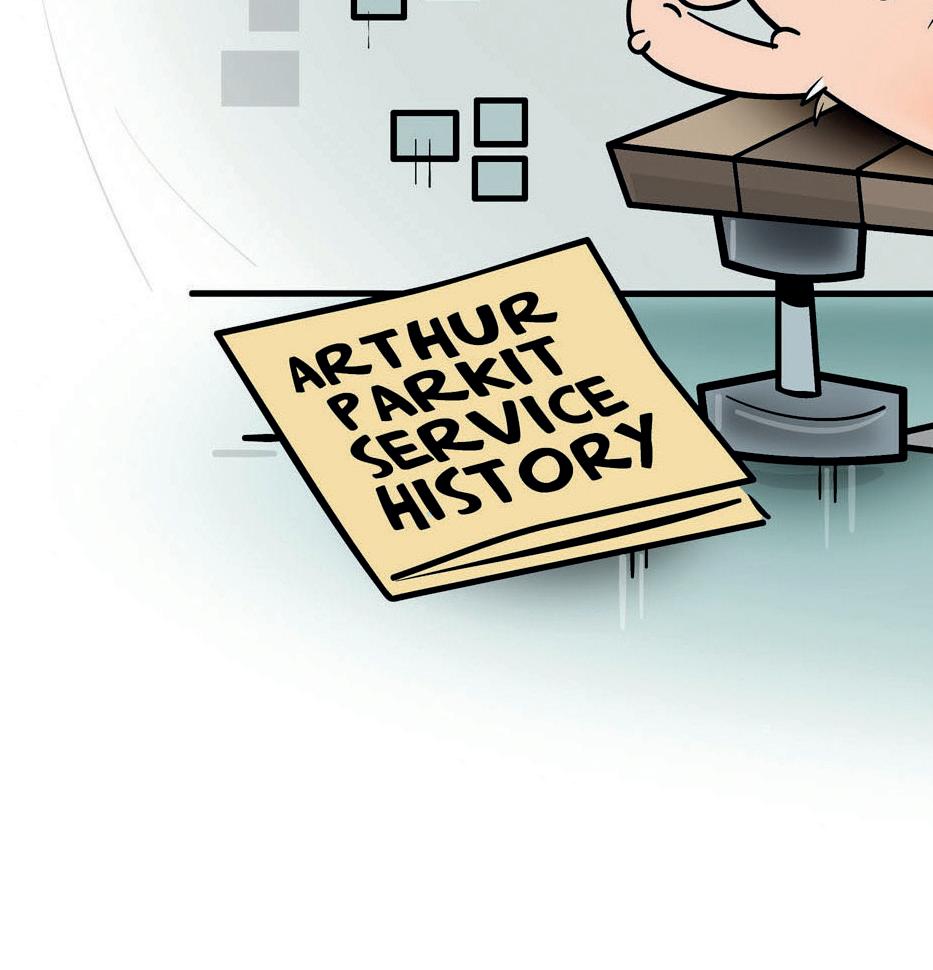





espite all the talk about planning a holiday I’ve rather let things get a bit on top of me of late. I crammed in more pre-holiday services for some of my regulars who are planning trips over the coming weeks and who wanted the family motor running smoothly.
However, the daily demands of life are still there, not the least finding the time to write this column. Amazingly, the new editor still wants to hear my musings. I must admit, I enjoy swapping the spanner for a pen — yep, I still sketch out my notes first before getting out the laptop.
As I said, it’s been a bit busy of late and I lost my notes for a time. Apprentice Jay (Mrs P says I must stop calling him ‘the lad’) found them just in time — written on the back of an invoice that was being prepared for someone who was coming in to pick up their car. He asked me why I didn’t use the
laptop from the start… then of course he starts over about ‘IoT’ and ‘AI’. I’m not stuck in the past, but sometimes I feel I have enough to do to keep up with the present, let alone step into the future.
I must admit that Jay really shows a talent for technology. I took him along to the UK Garage and Bodyshop Event last month and he came back with some really good ideas for promoting the business.
I think my eyes glazed over when he started talking about getting us on “Insta” (think that’s what he called it).
He mentioned Tik-Tok too, which on first hearing I thought was a new engine oil brand, but I’ve told him to see what he can come up and we’ll chat after the summer holiday.
No sooner as I talked about the holiday — he is off with his family to somewhere in the Med — the phone rang and it was Mrs P. She wanted to know if I’d got Jay to help me sort out a booking for that bargain flight to Spain
that she’d found online. ‘Remember, we talked about it last night!’ Oops, I forgot!
Now, I must admit, Mrs P and I never really argue. I just tend to listen and that seems to work out fine. Anyhow, once again, she’s saved the day and come up with a solution.
She has got the local travel agent to arrange a flight for her to go and stay at her sister’s place in Spain for a month. I’m going to shut up shop here when Jay goes and the agent is sorting me a ticket to follow on and be with Mrs P in a couple of weeks.
Oh, I do love multi-tasking, especially when it’s someone else doing it.
Business here should quieten down a bit now and it looks like we will have a few decent days of weather here at home now and again, so time to break out the garage picnic furniture and have a bit of a busman’s holiday first.
Happy summer break everyone. Let’s catch up in the September issue.







































Final held at Delphi Academy, Warwick

Book your table now:



